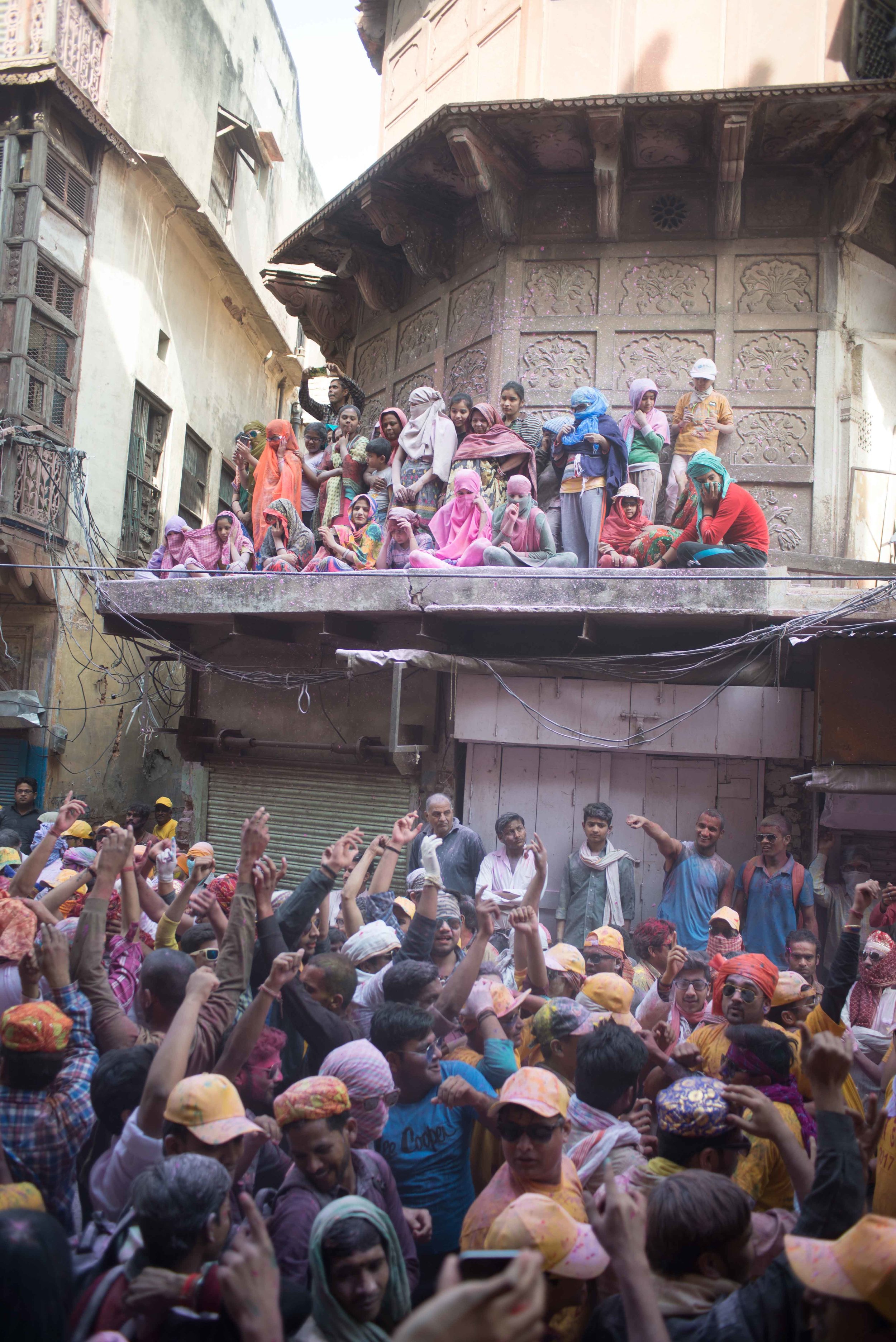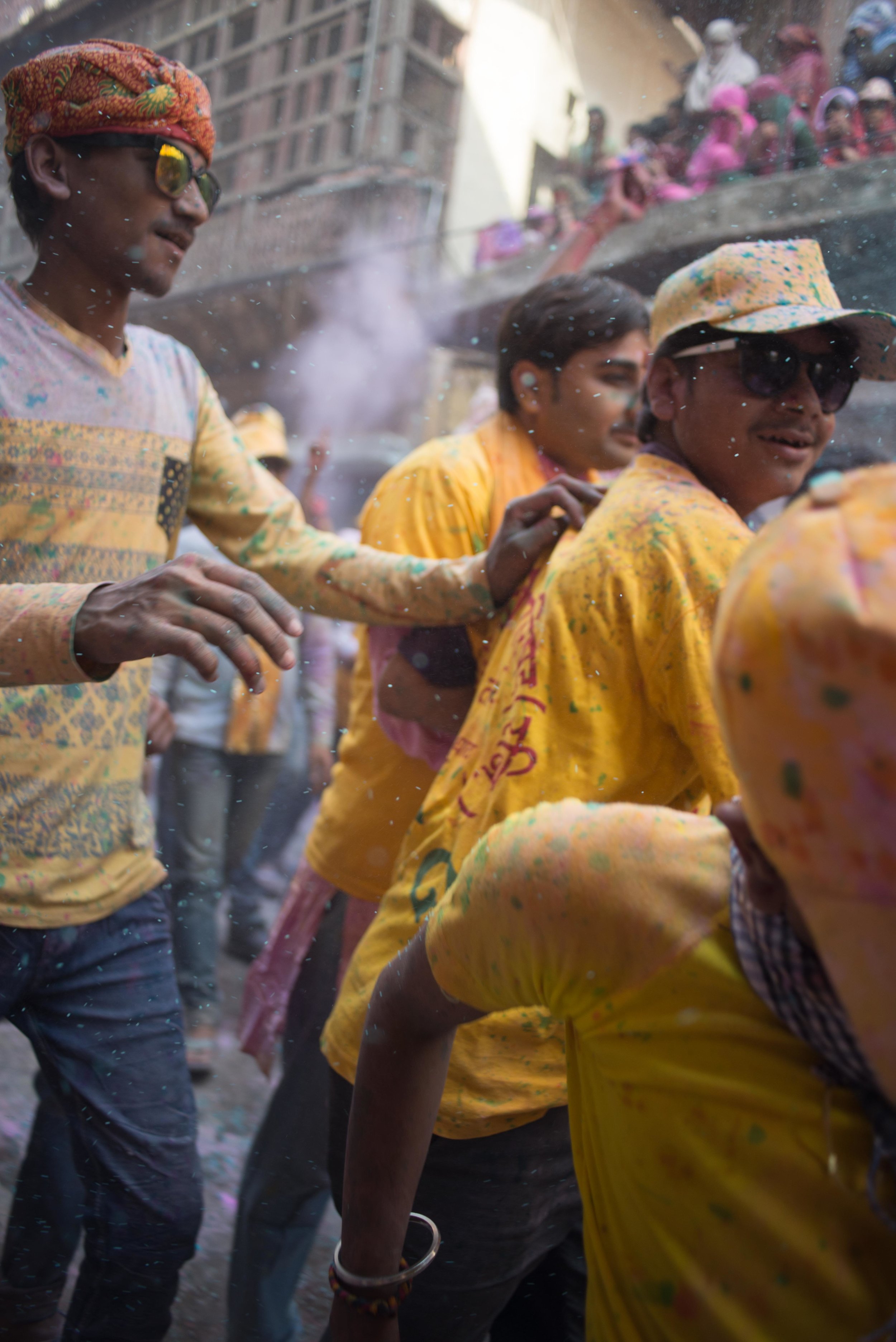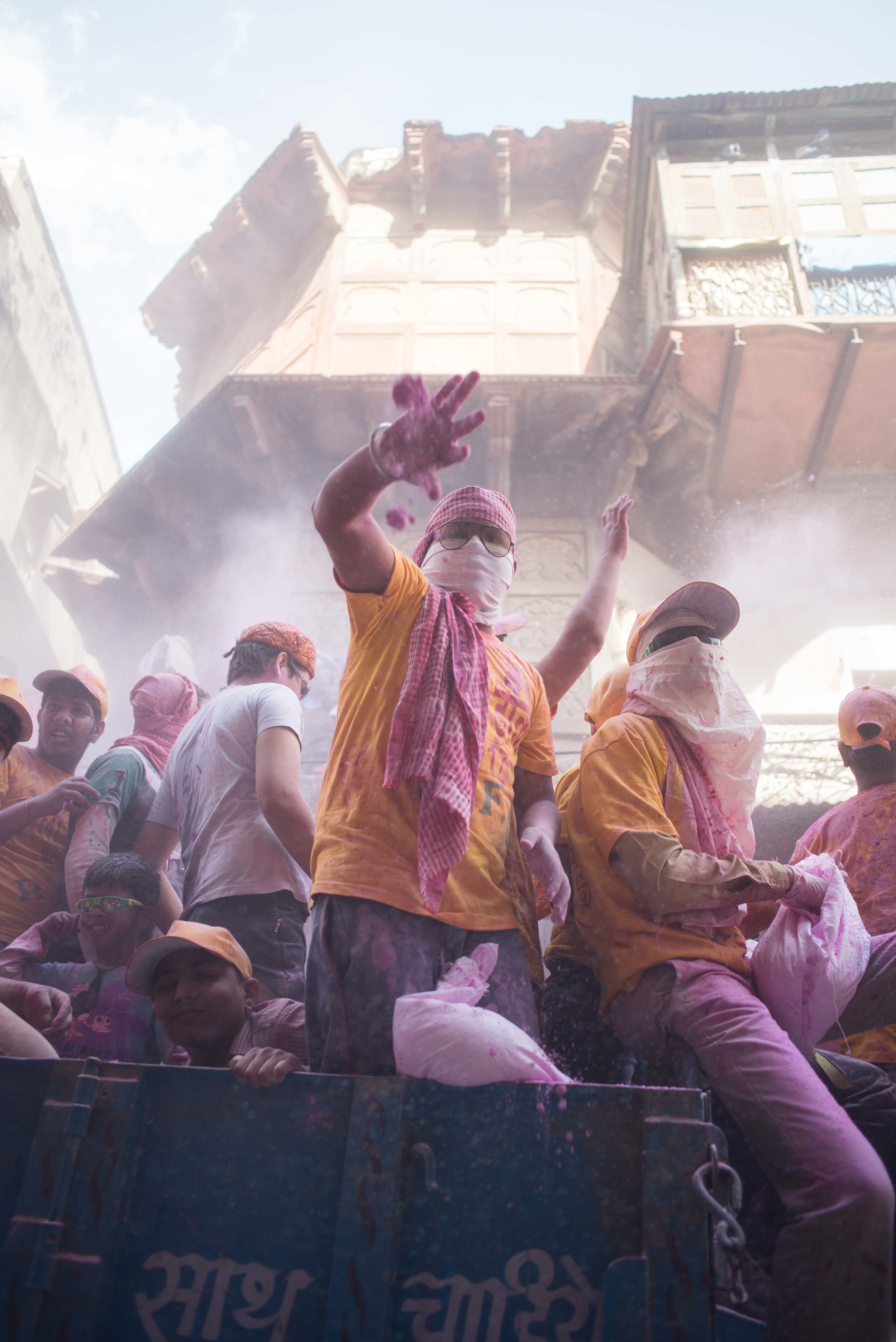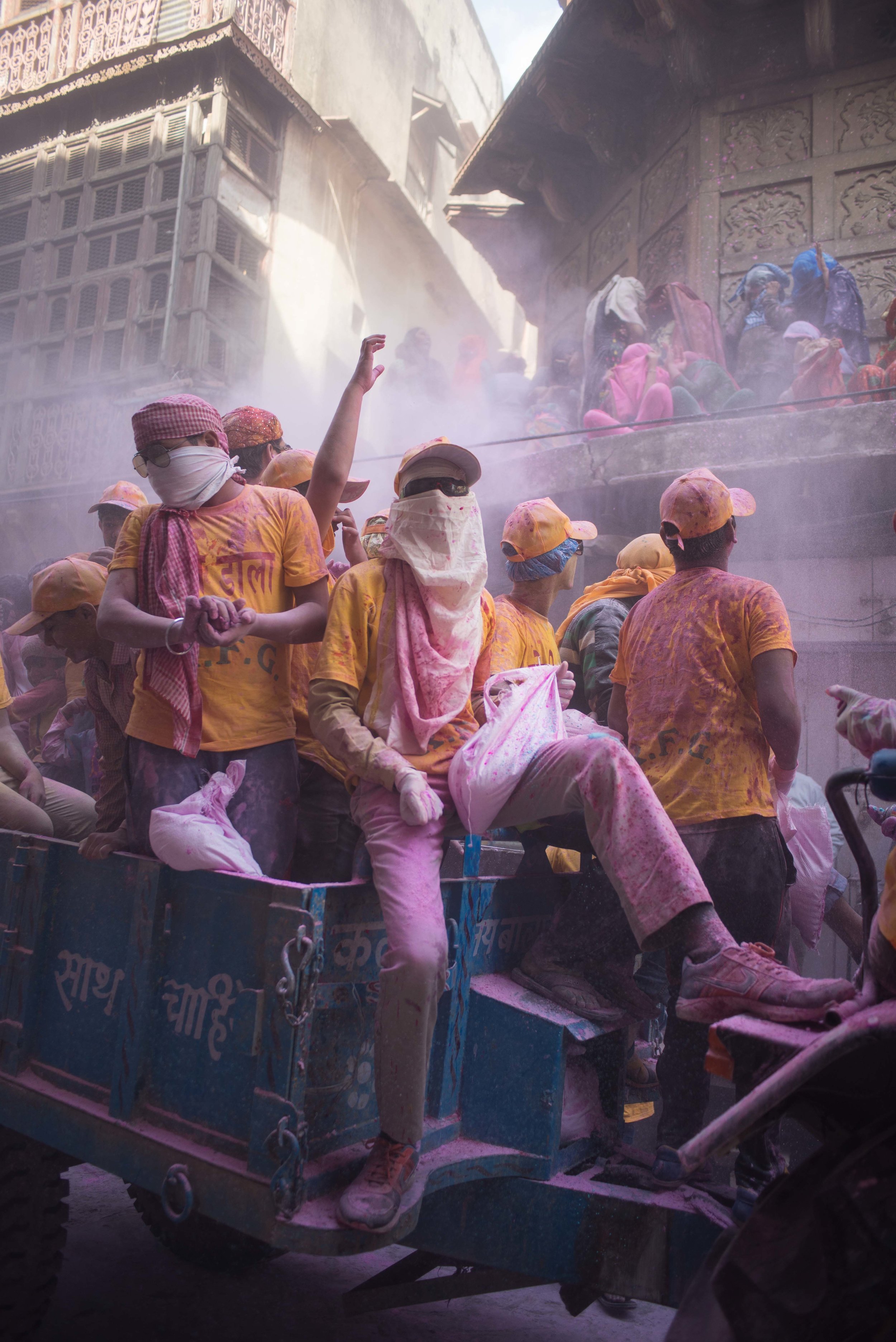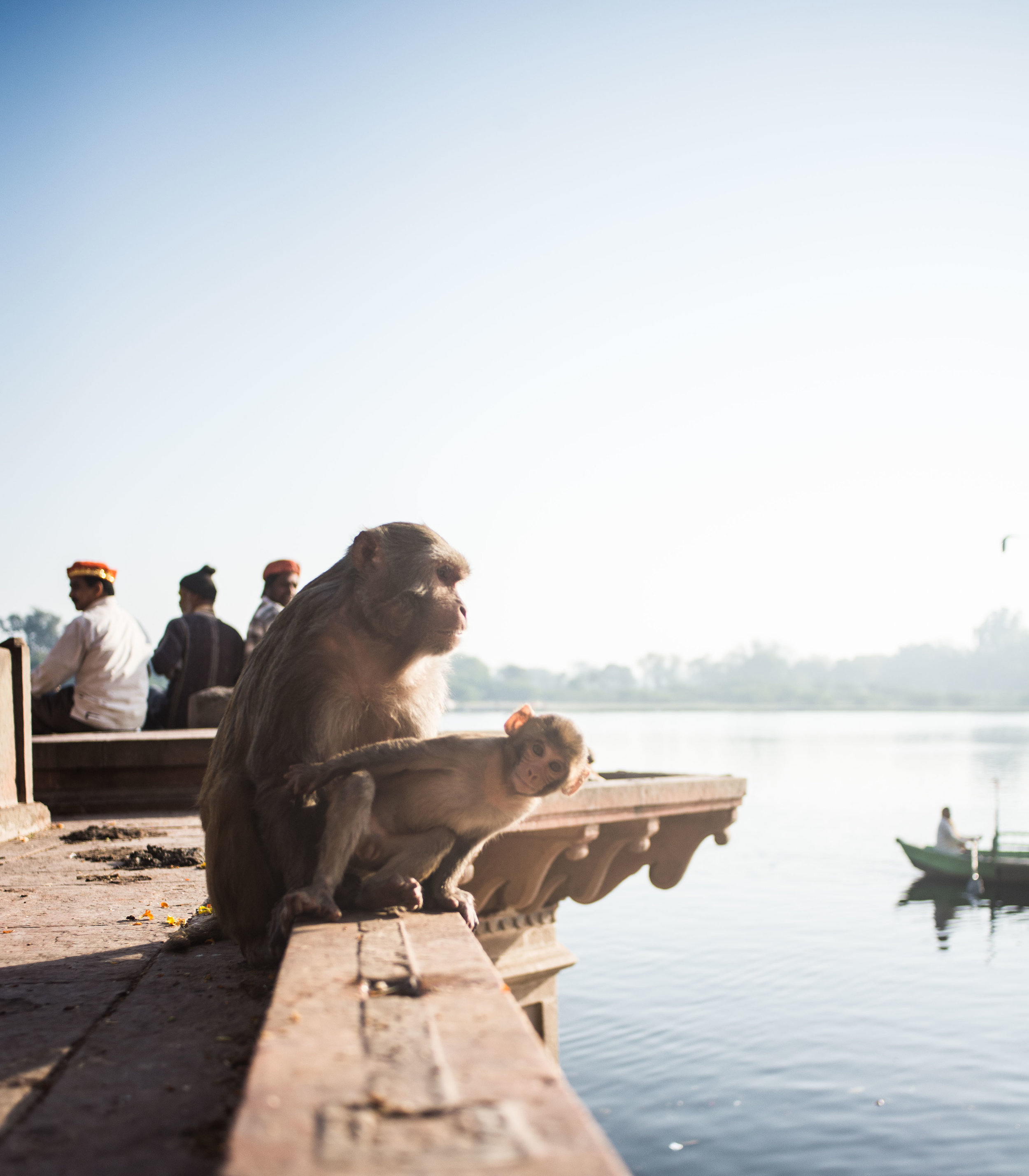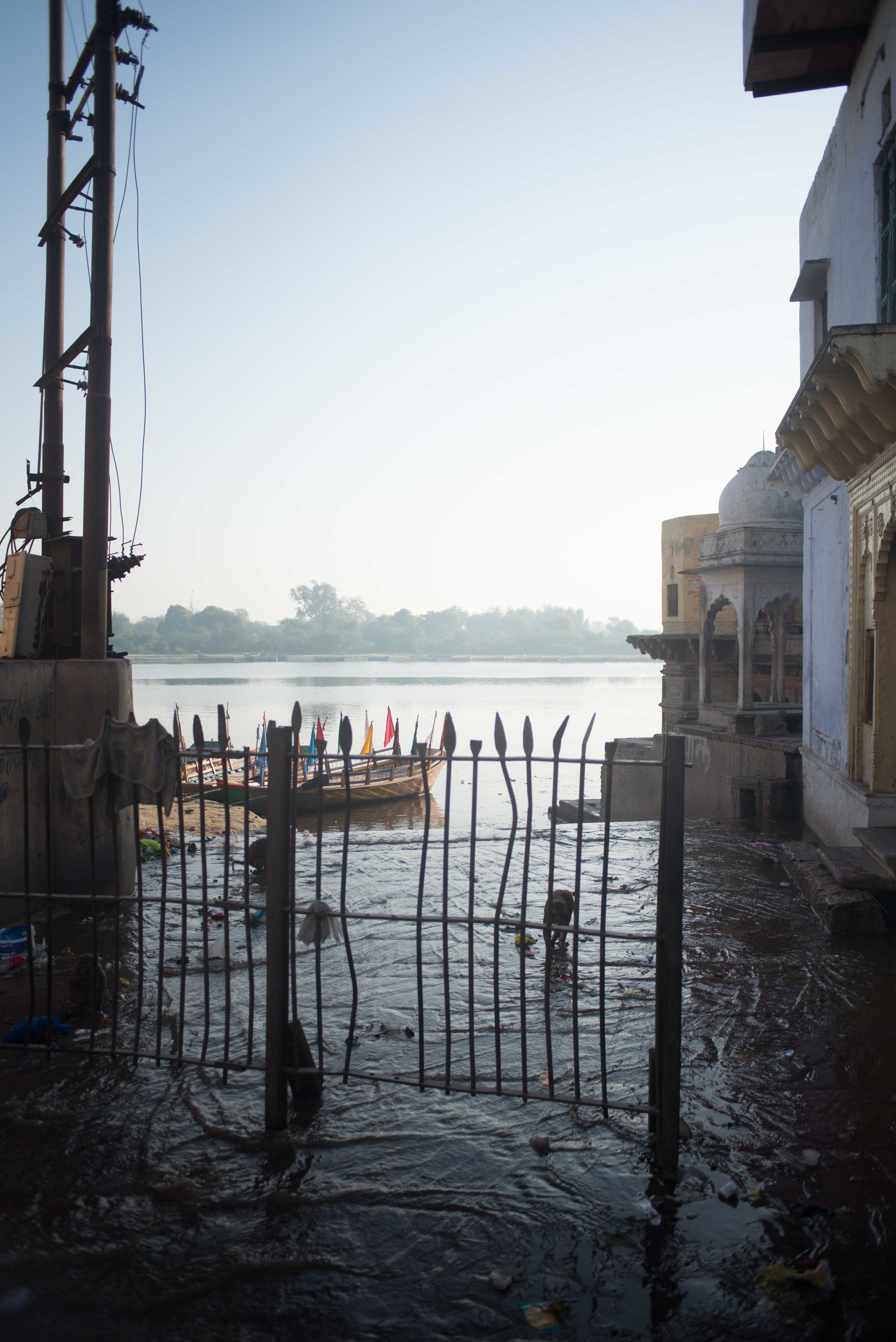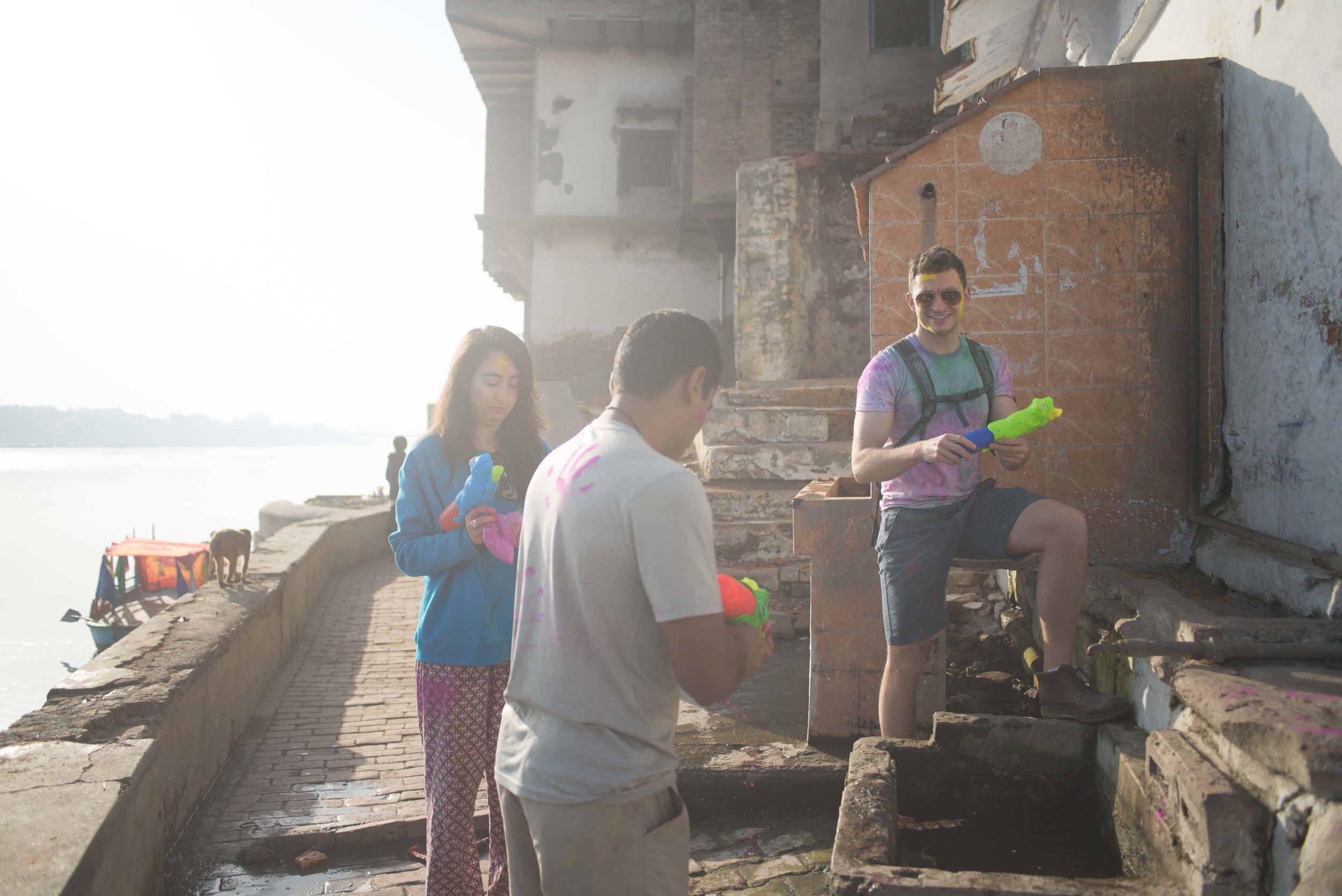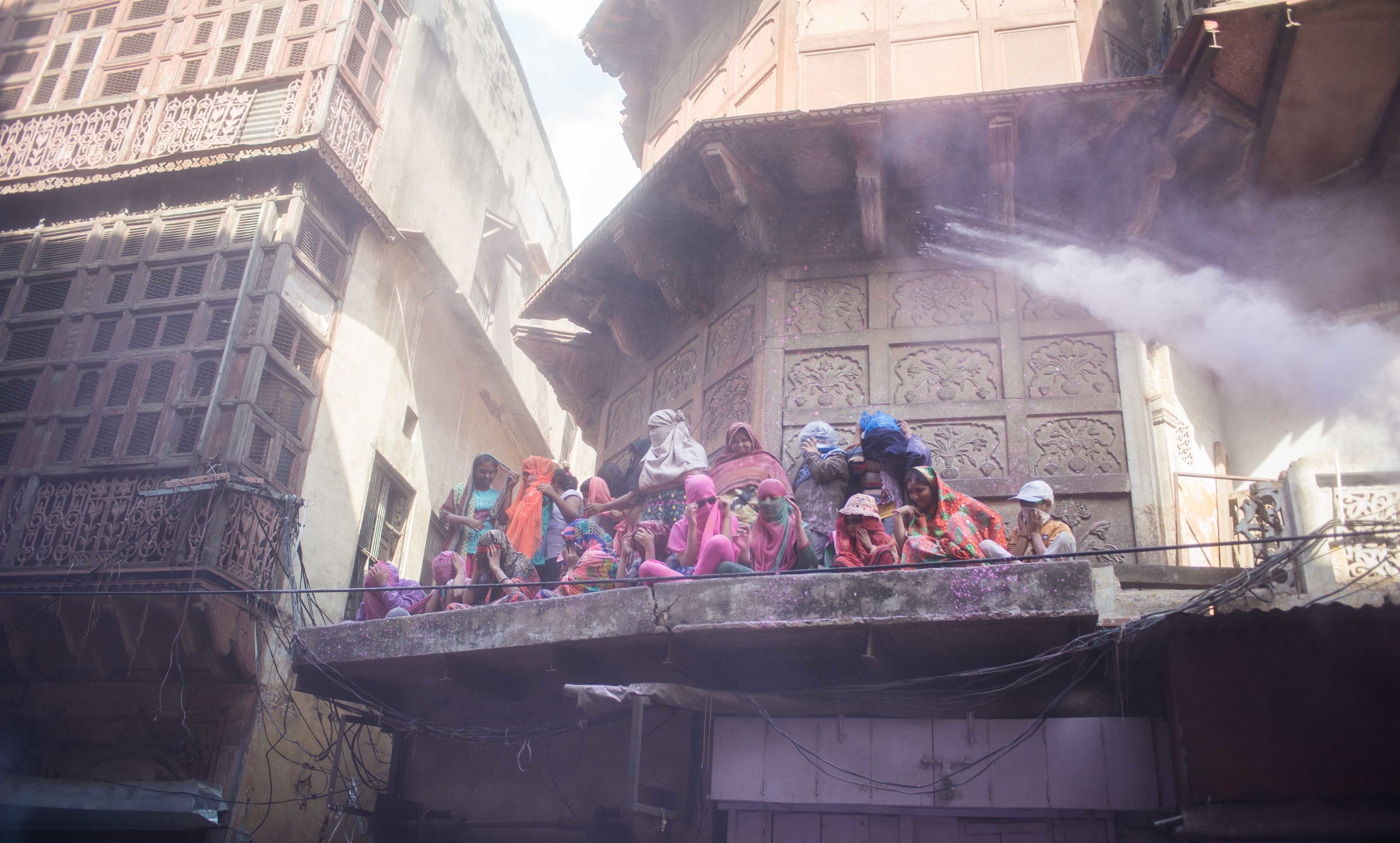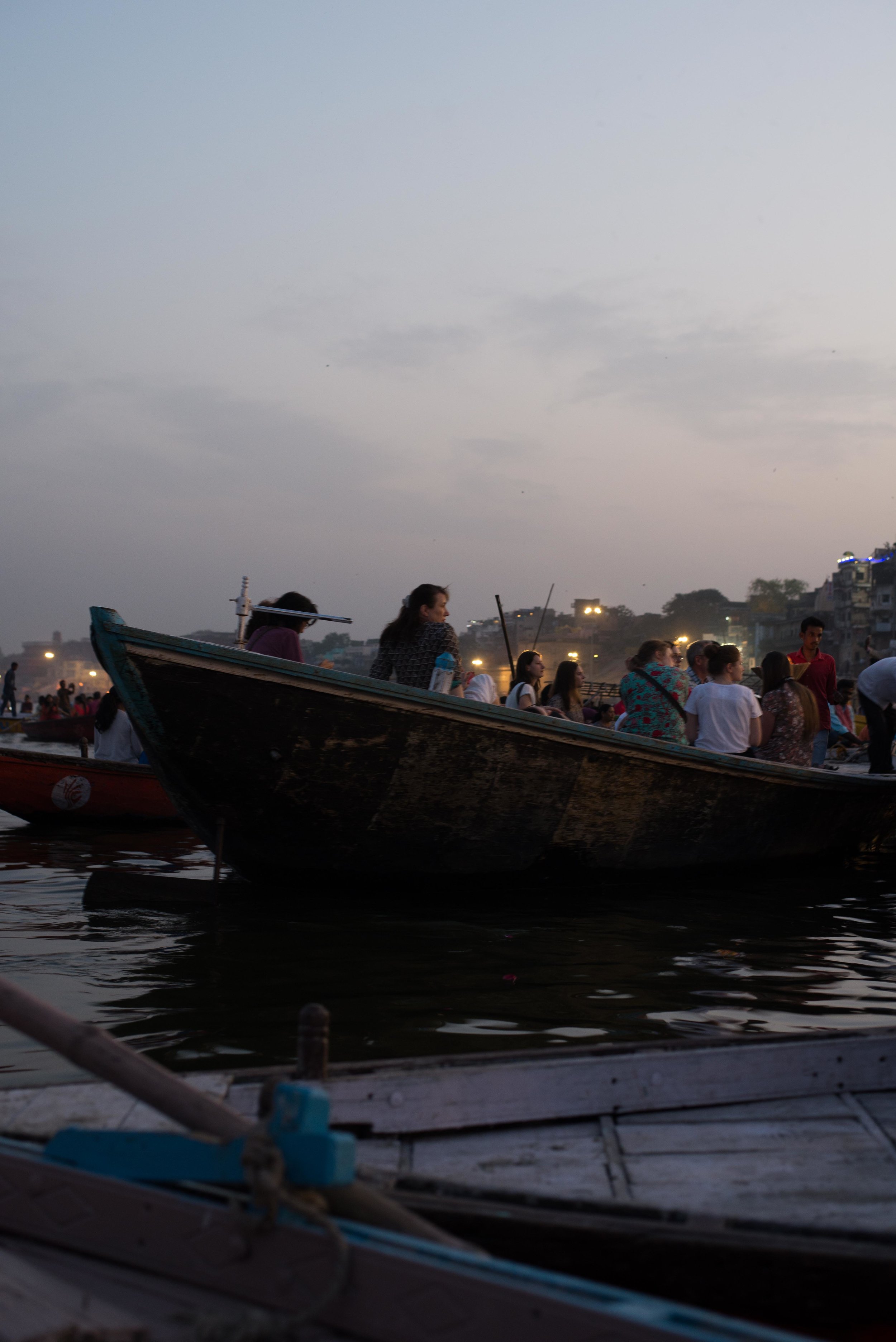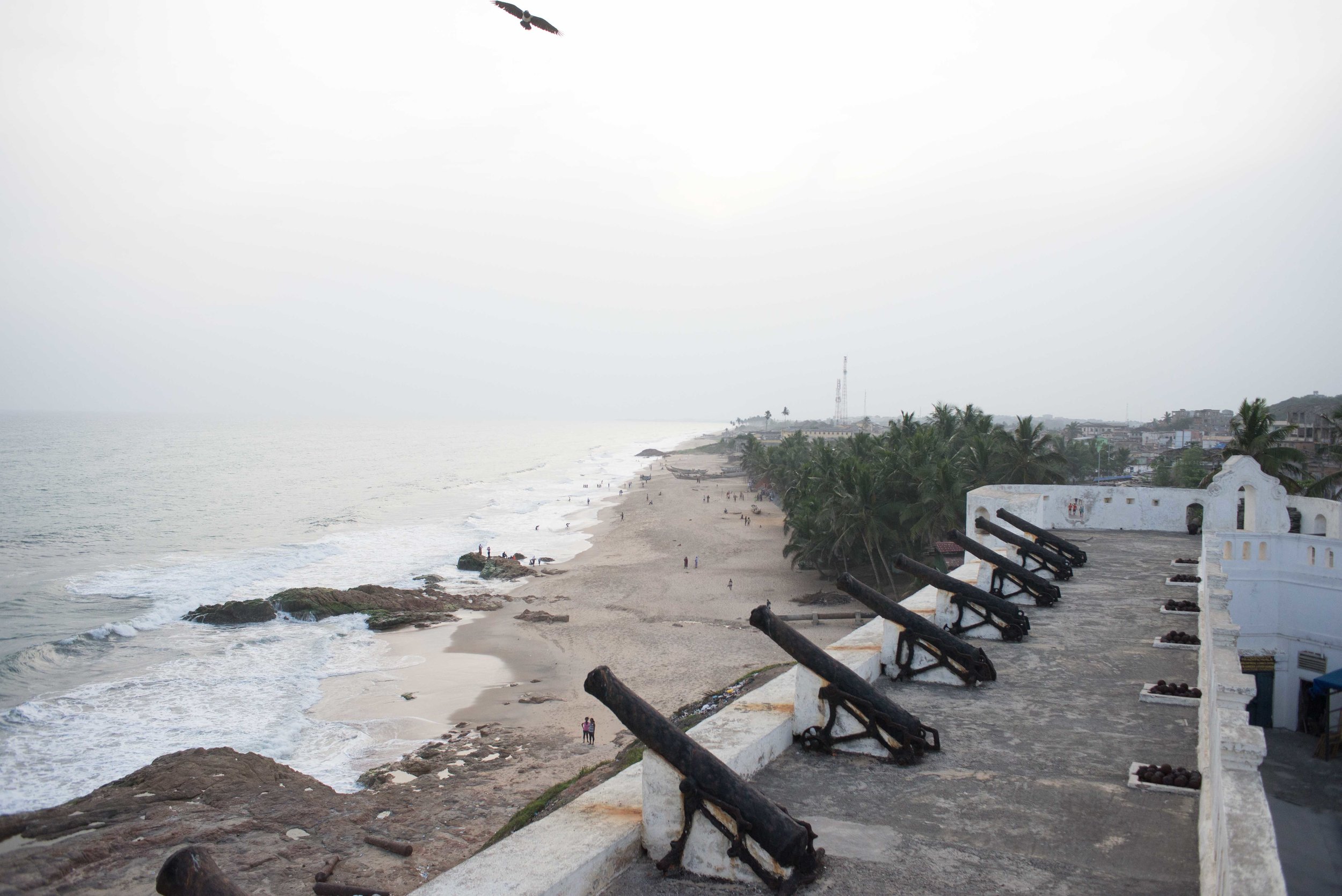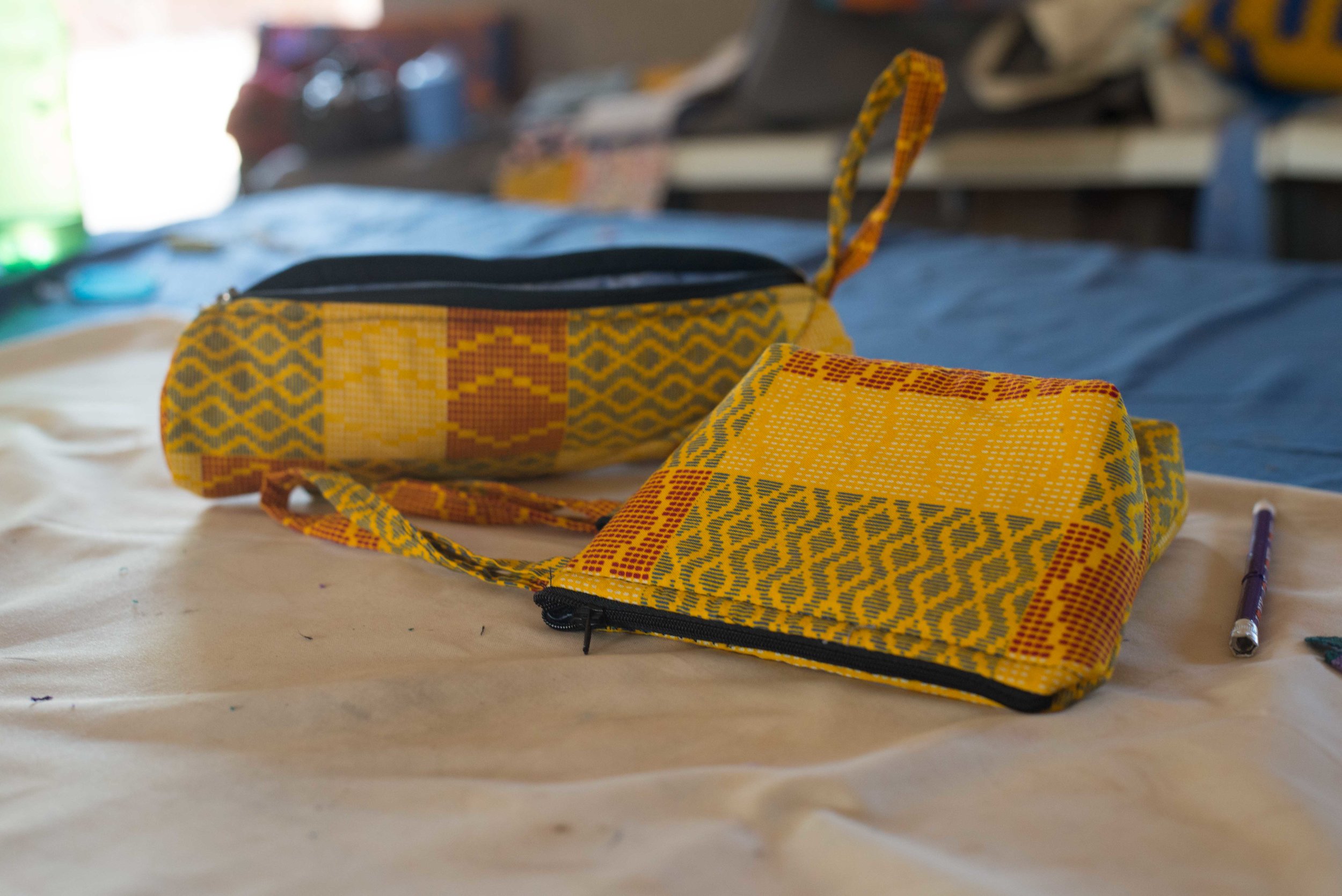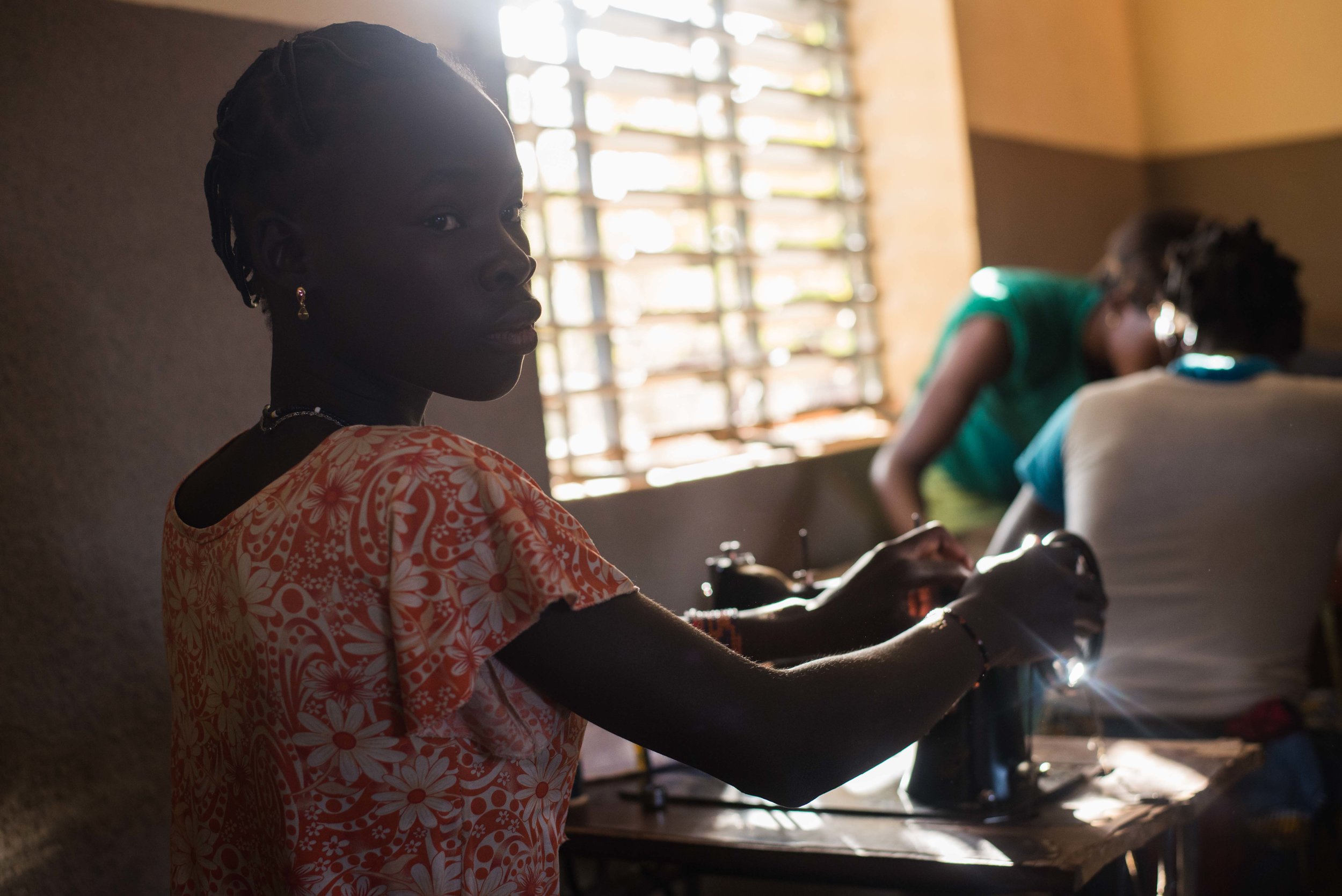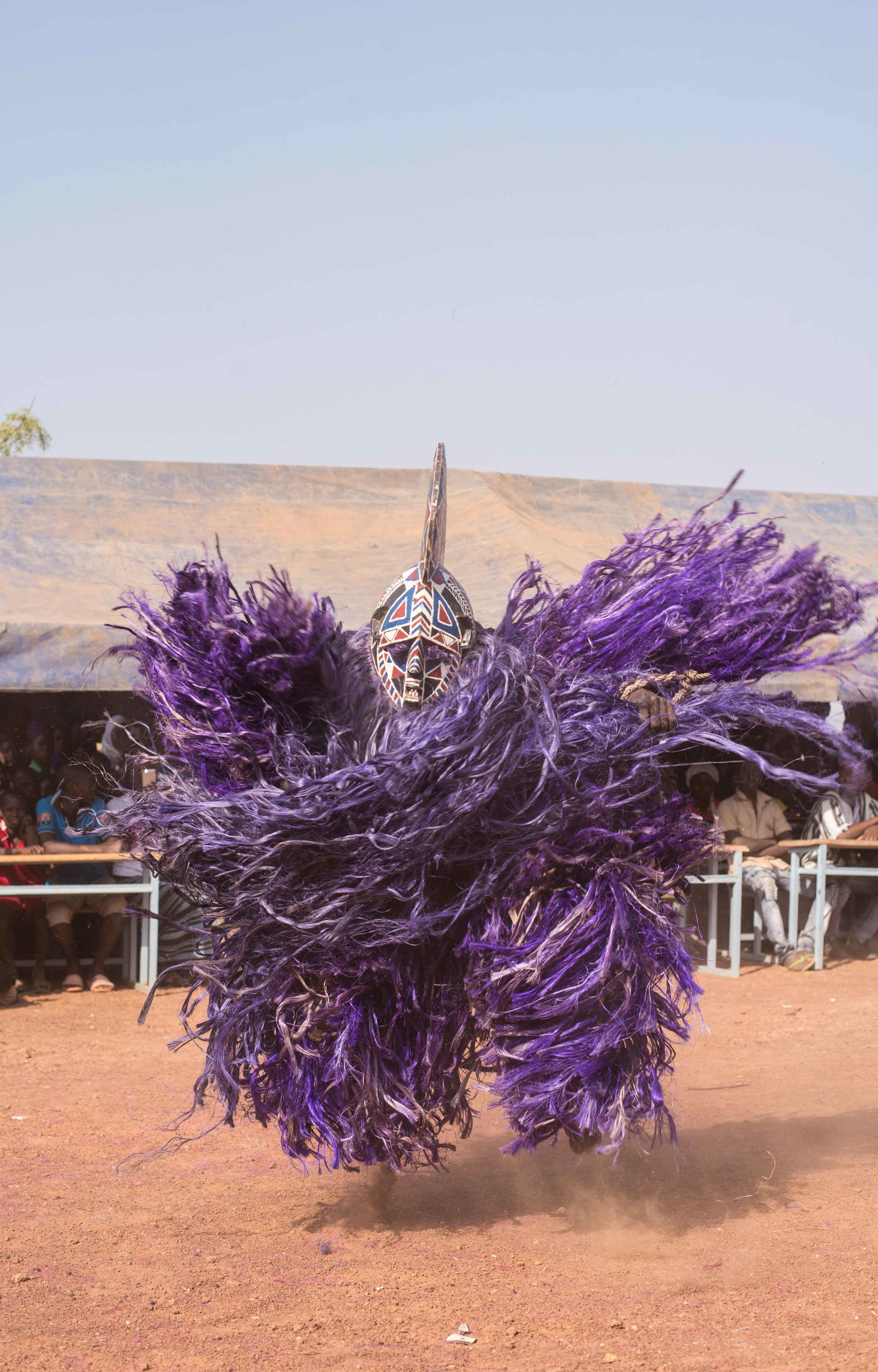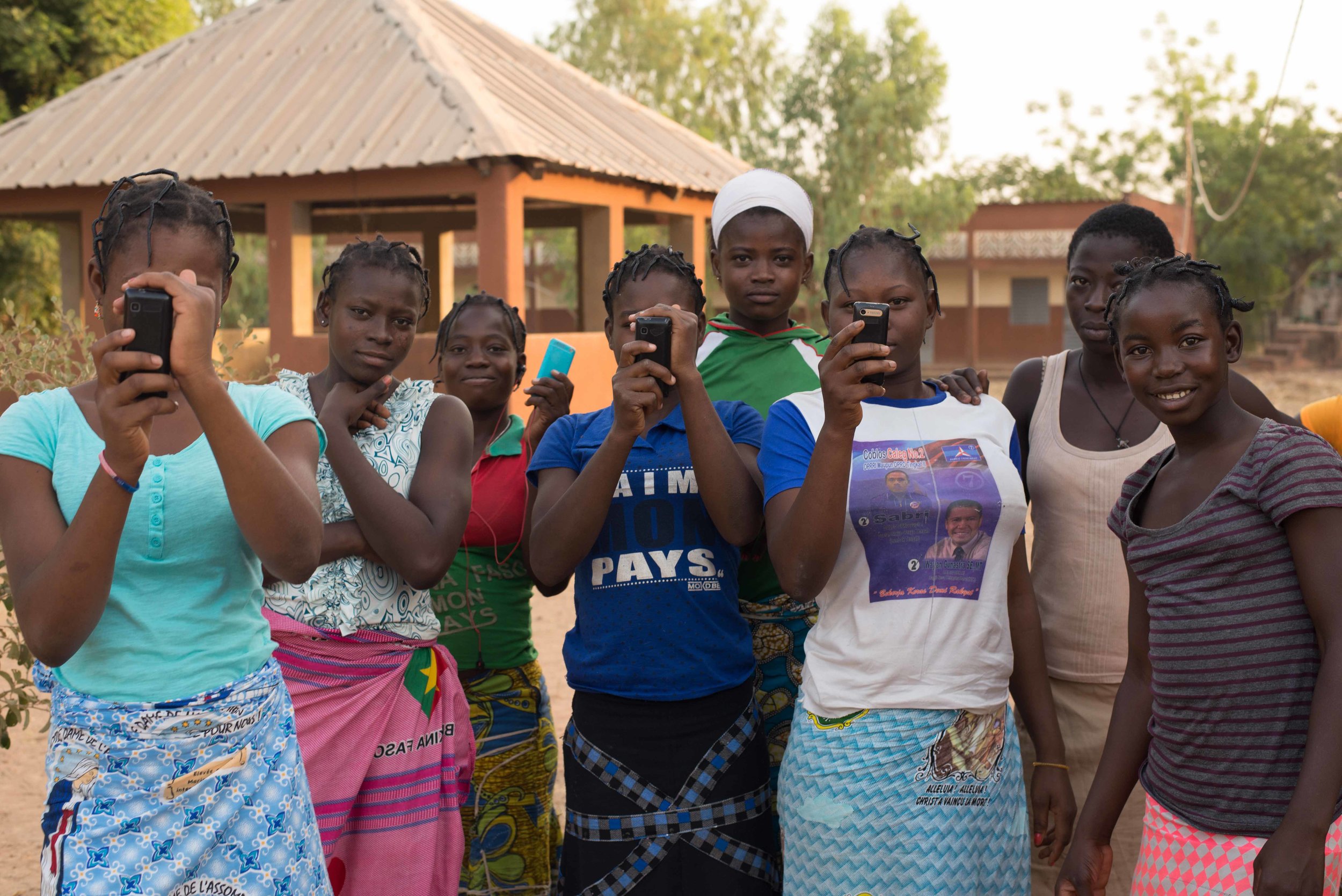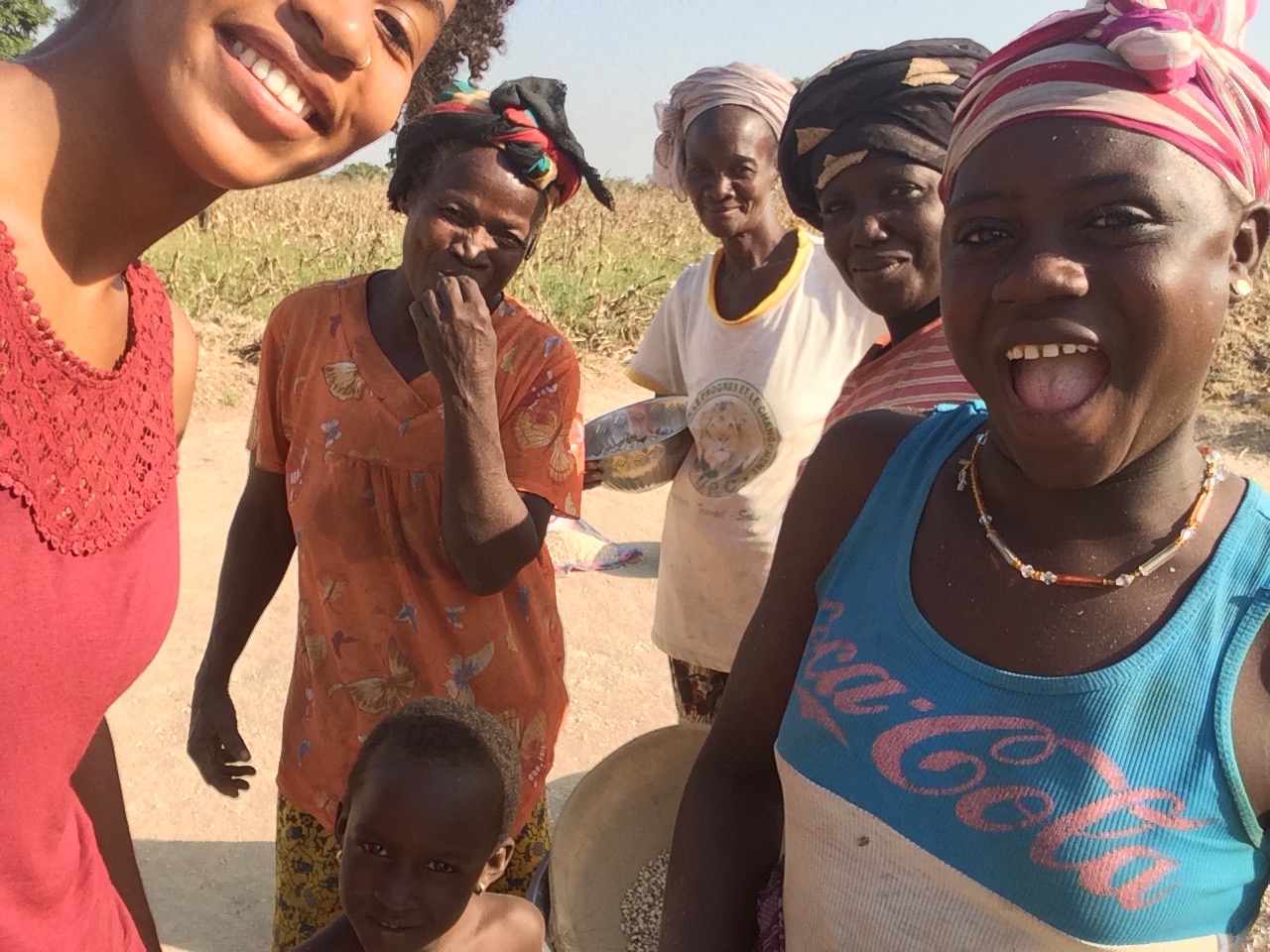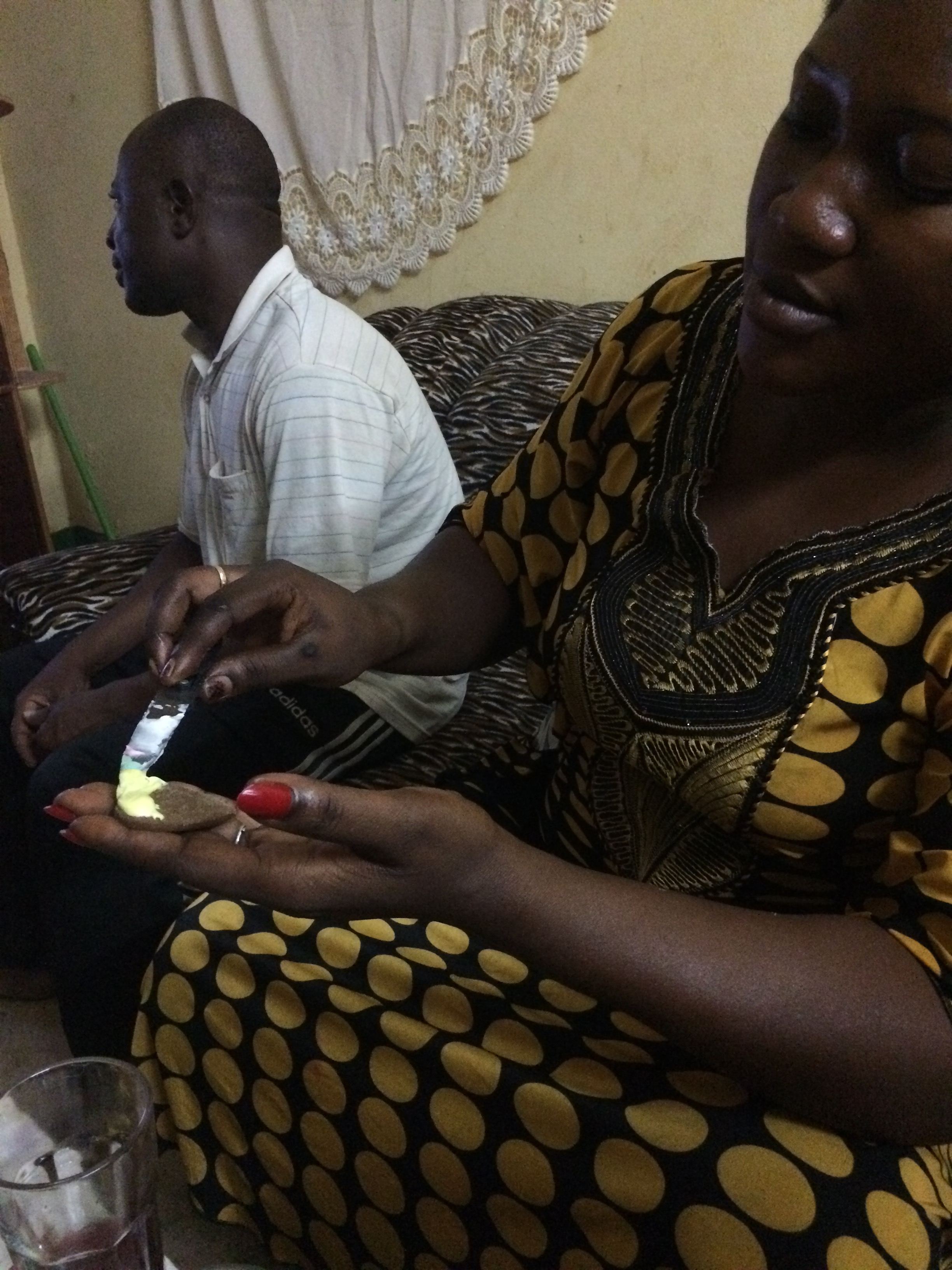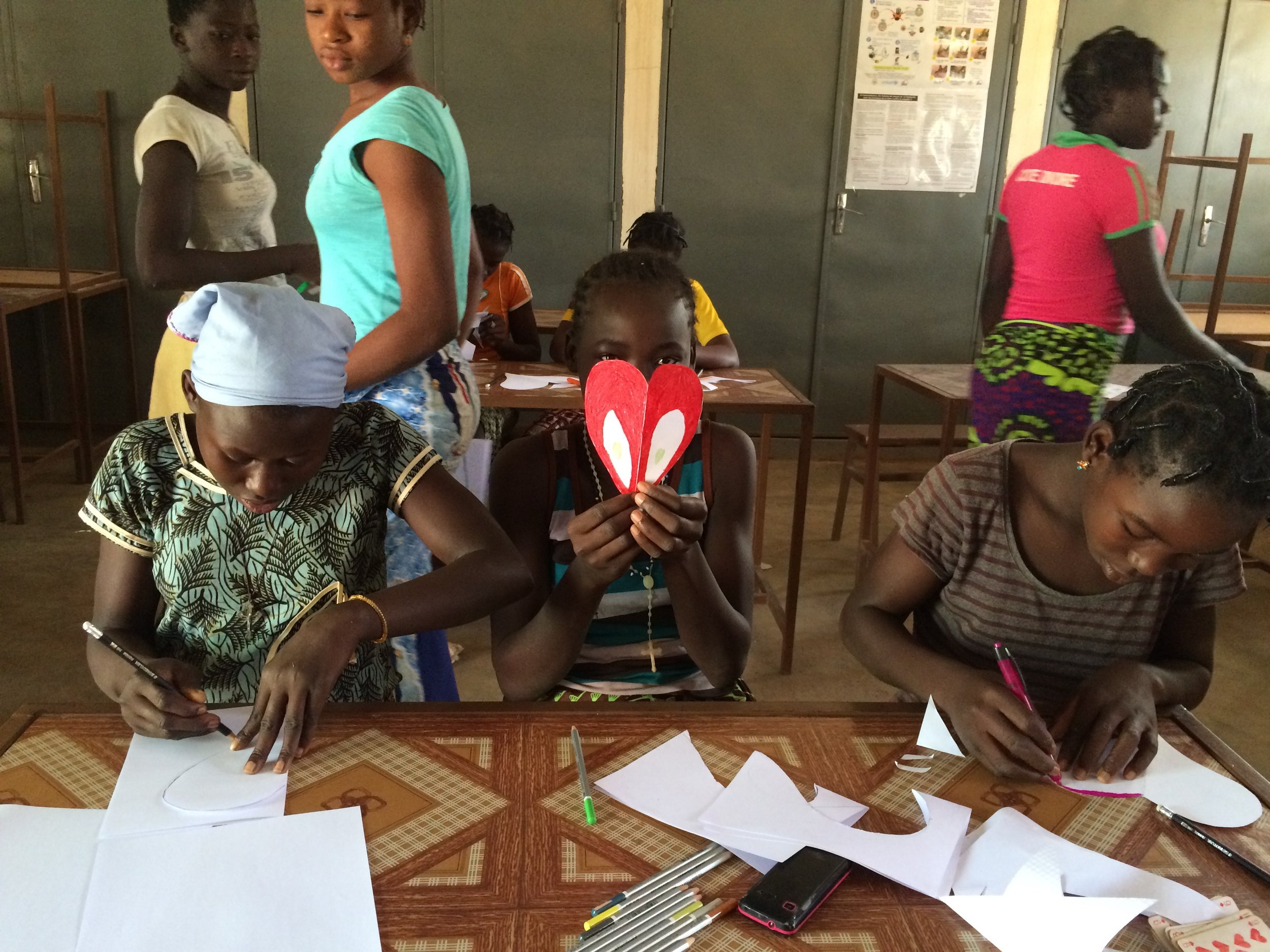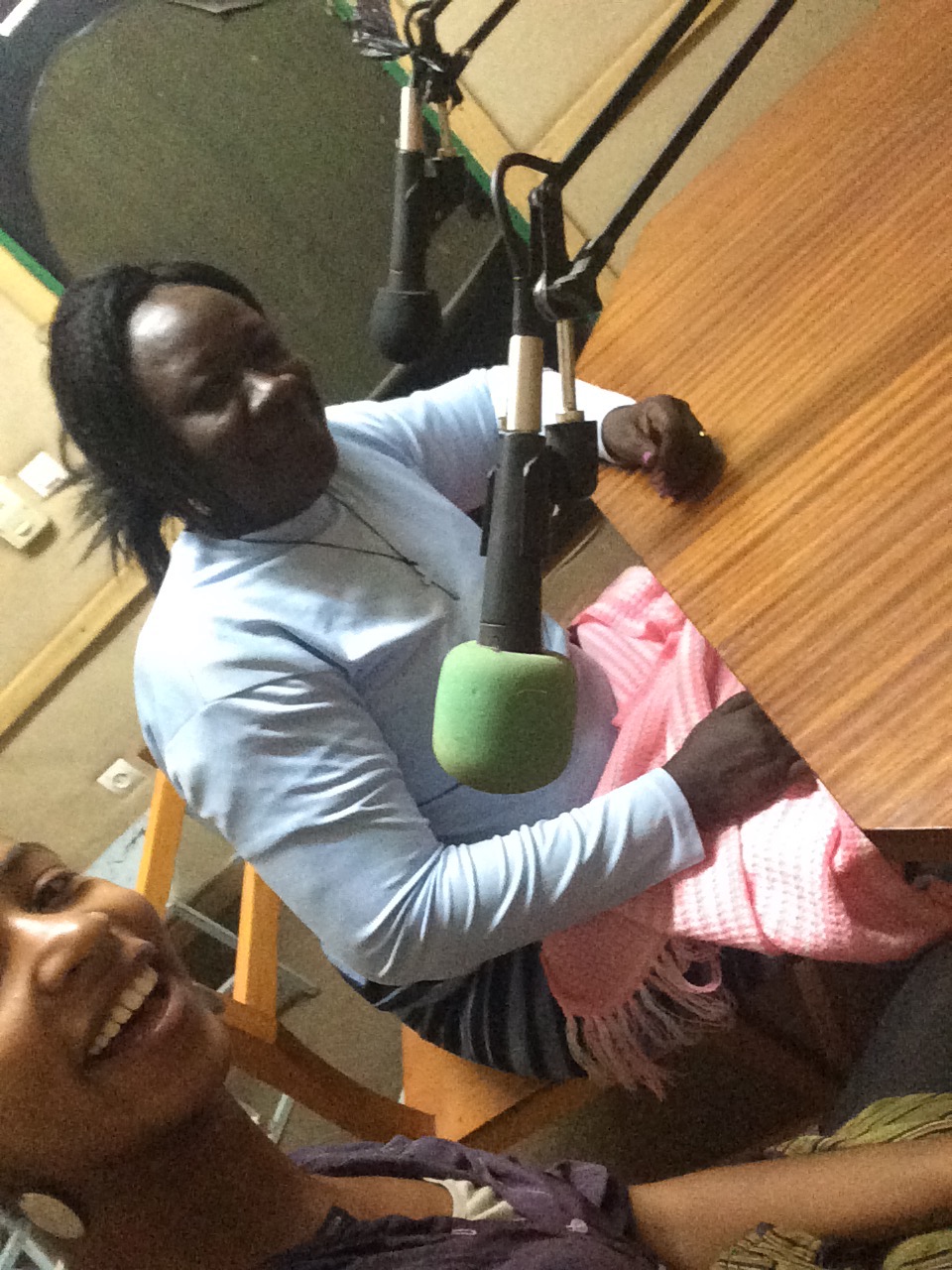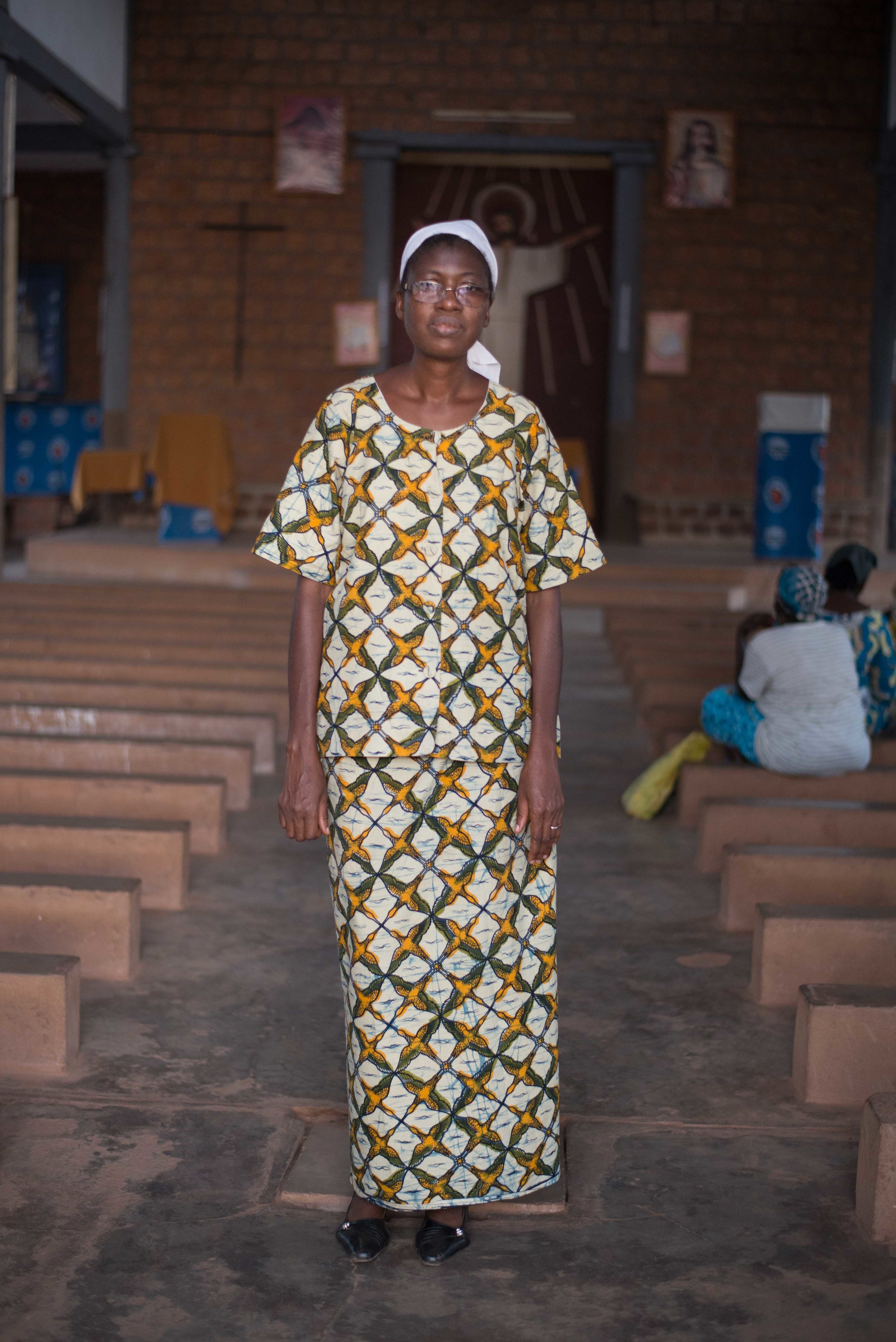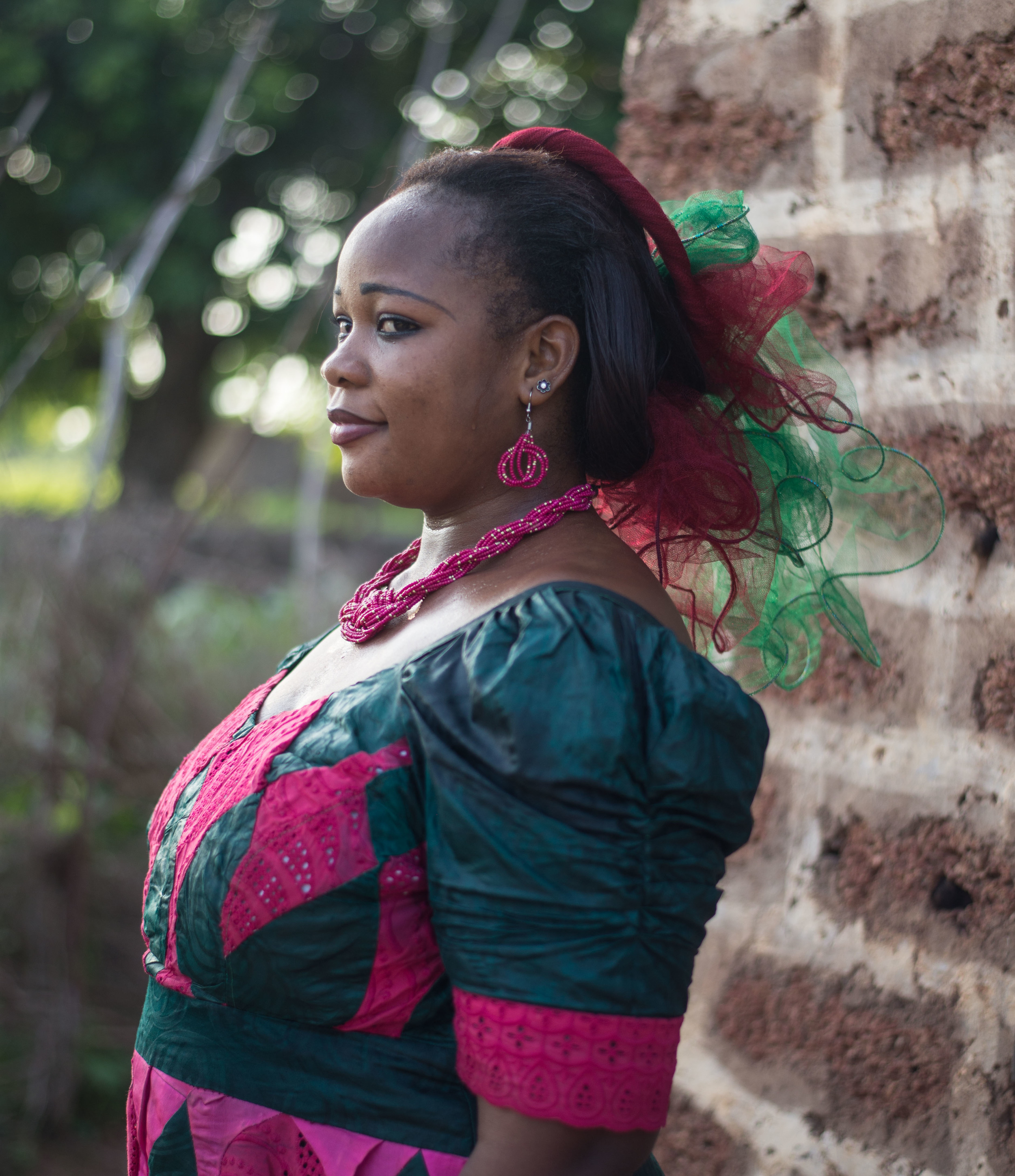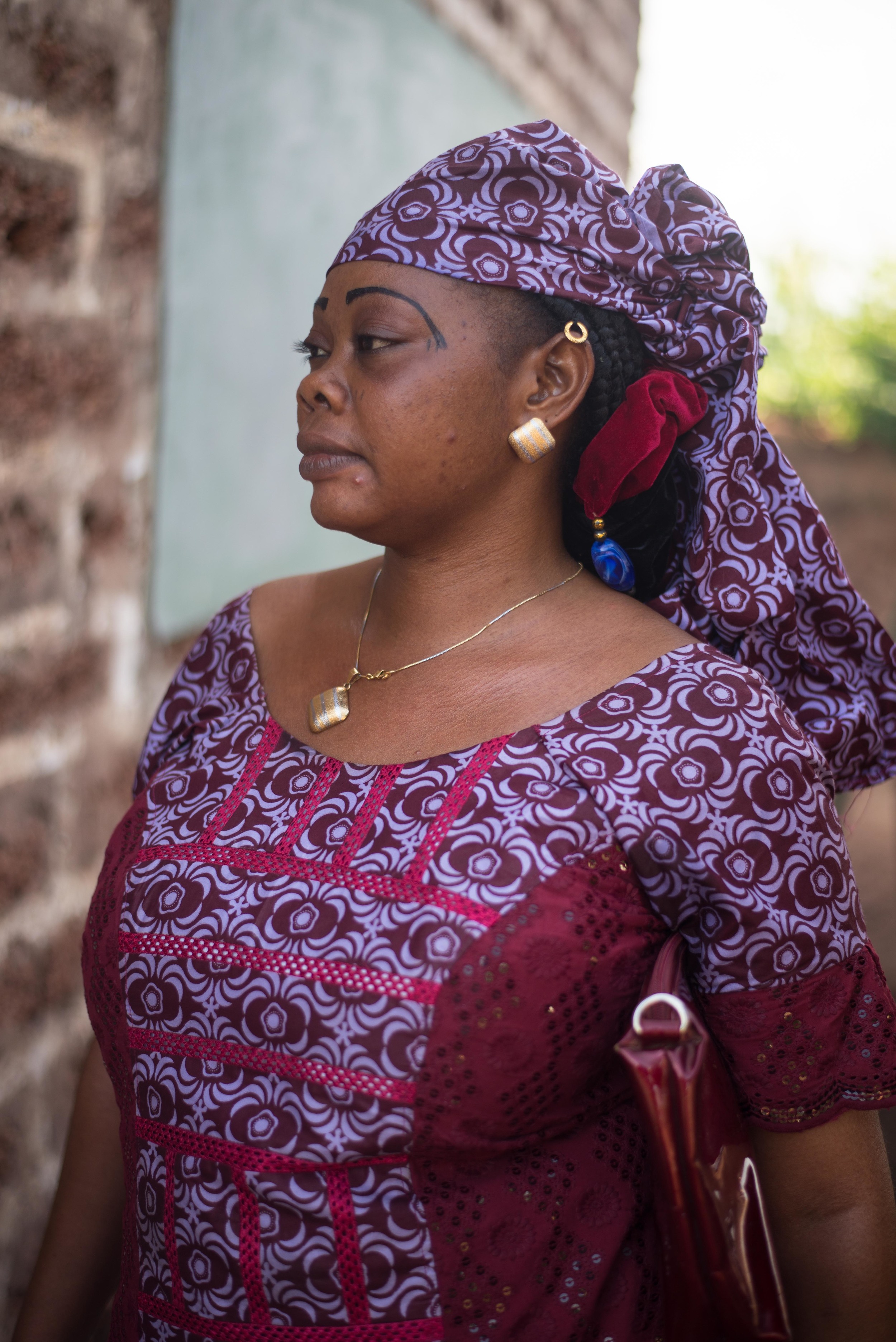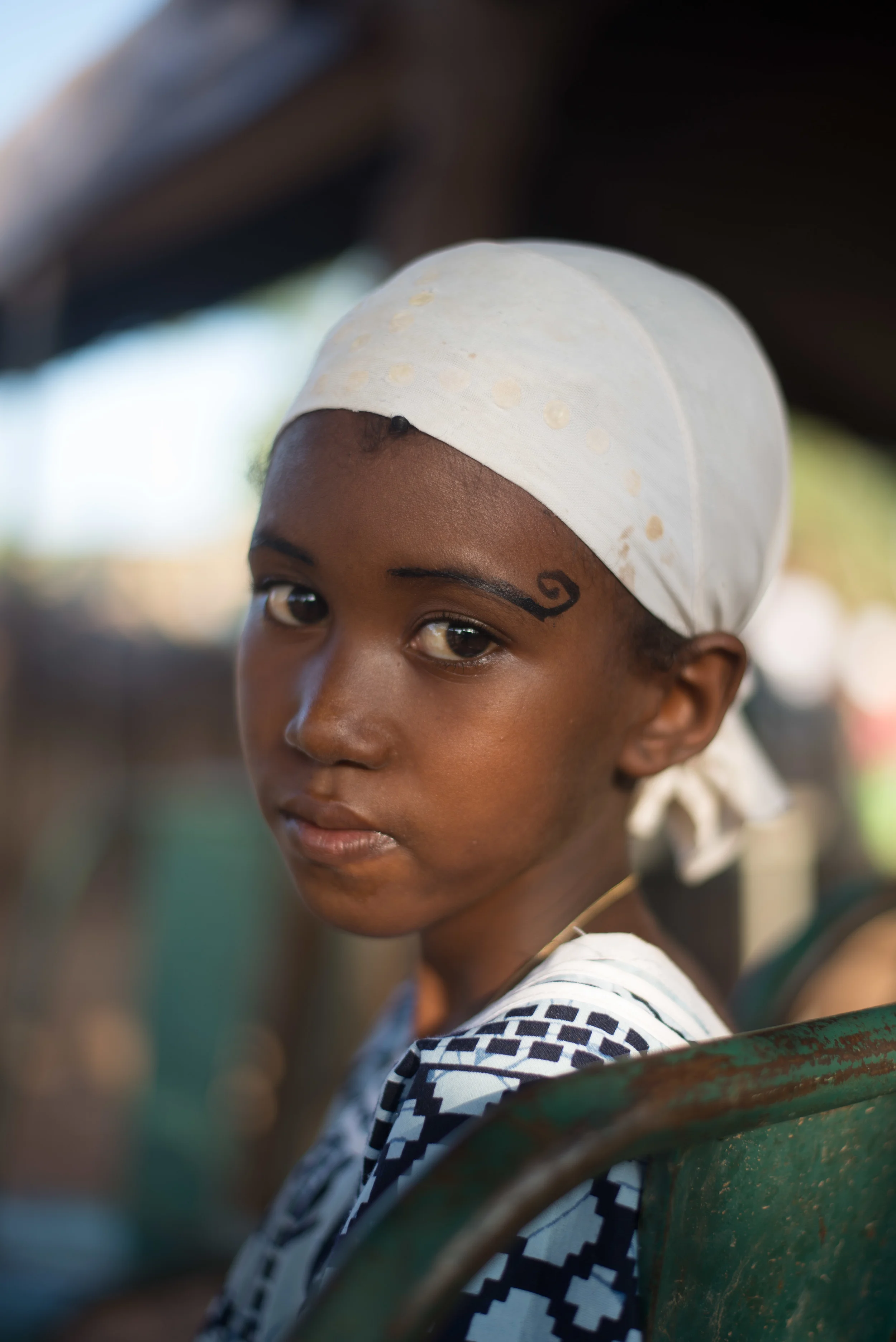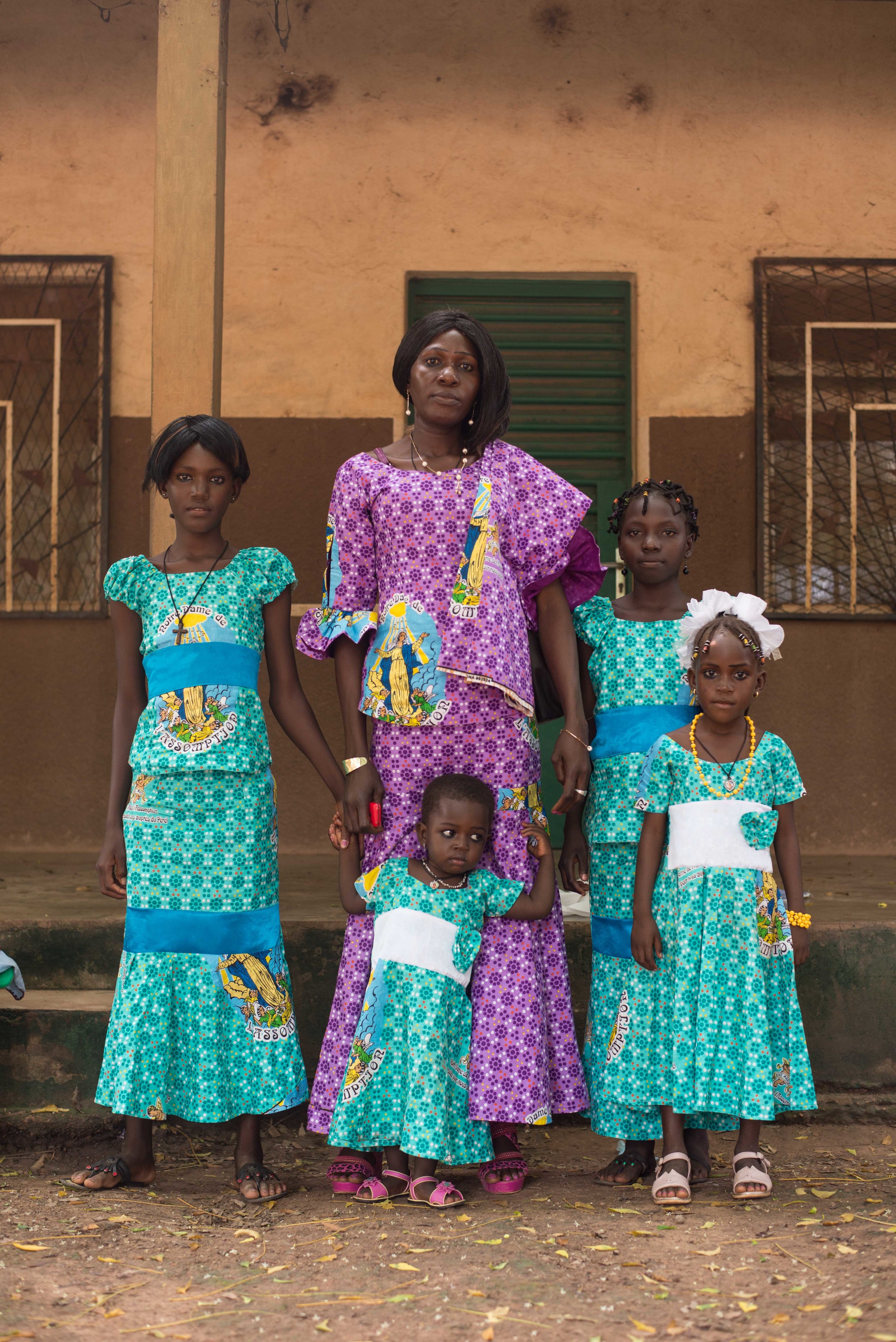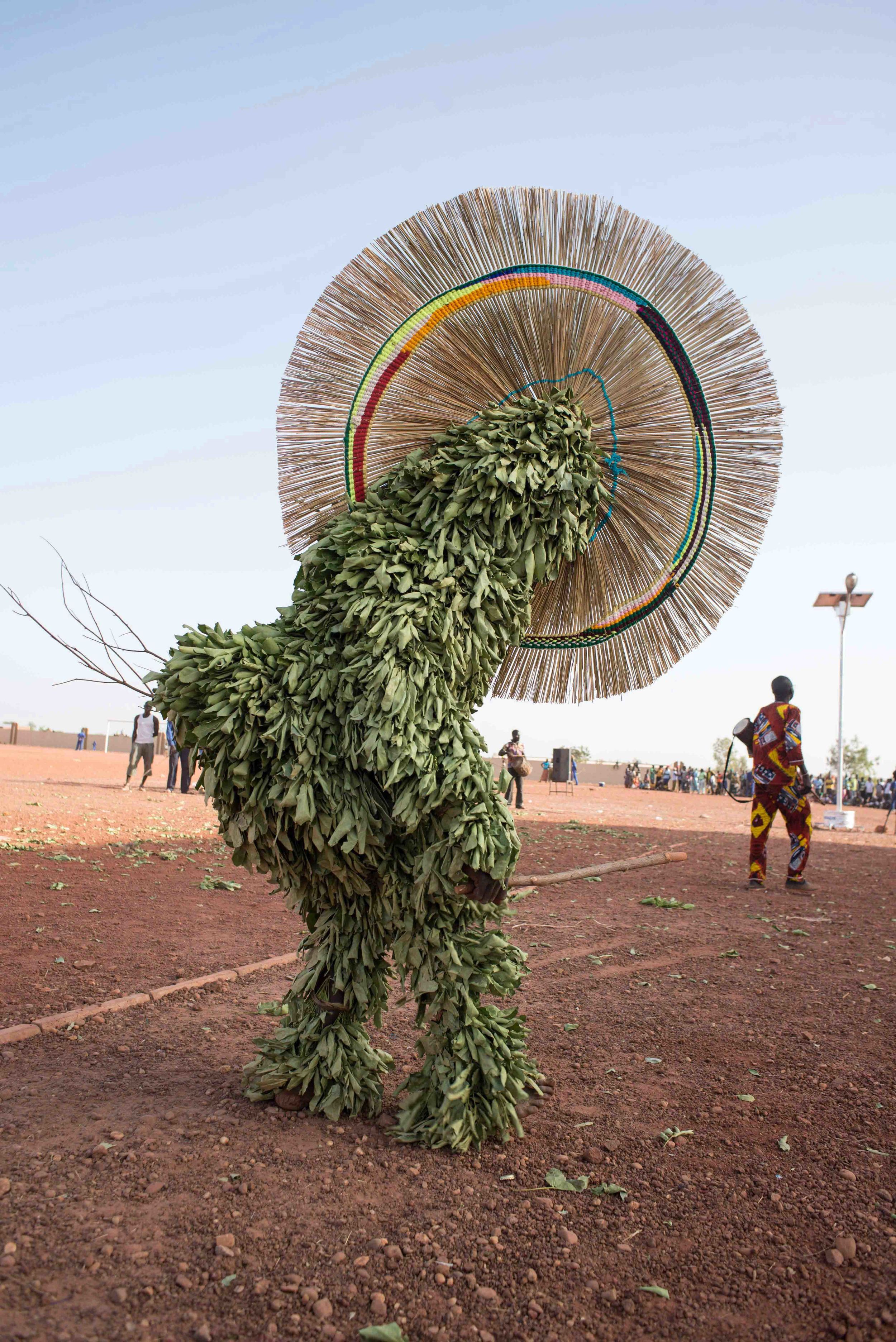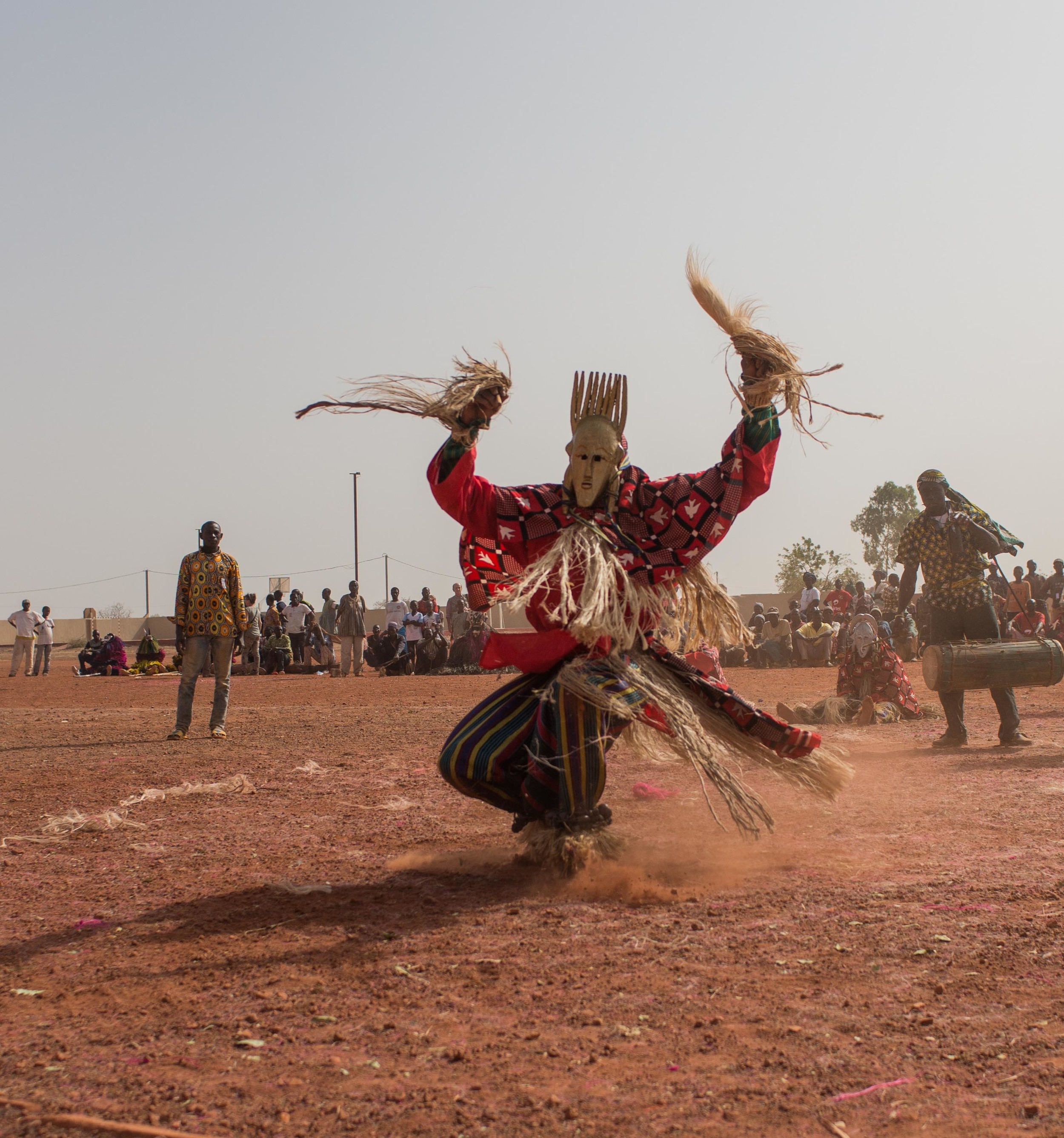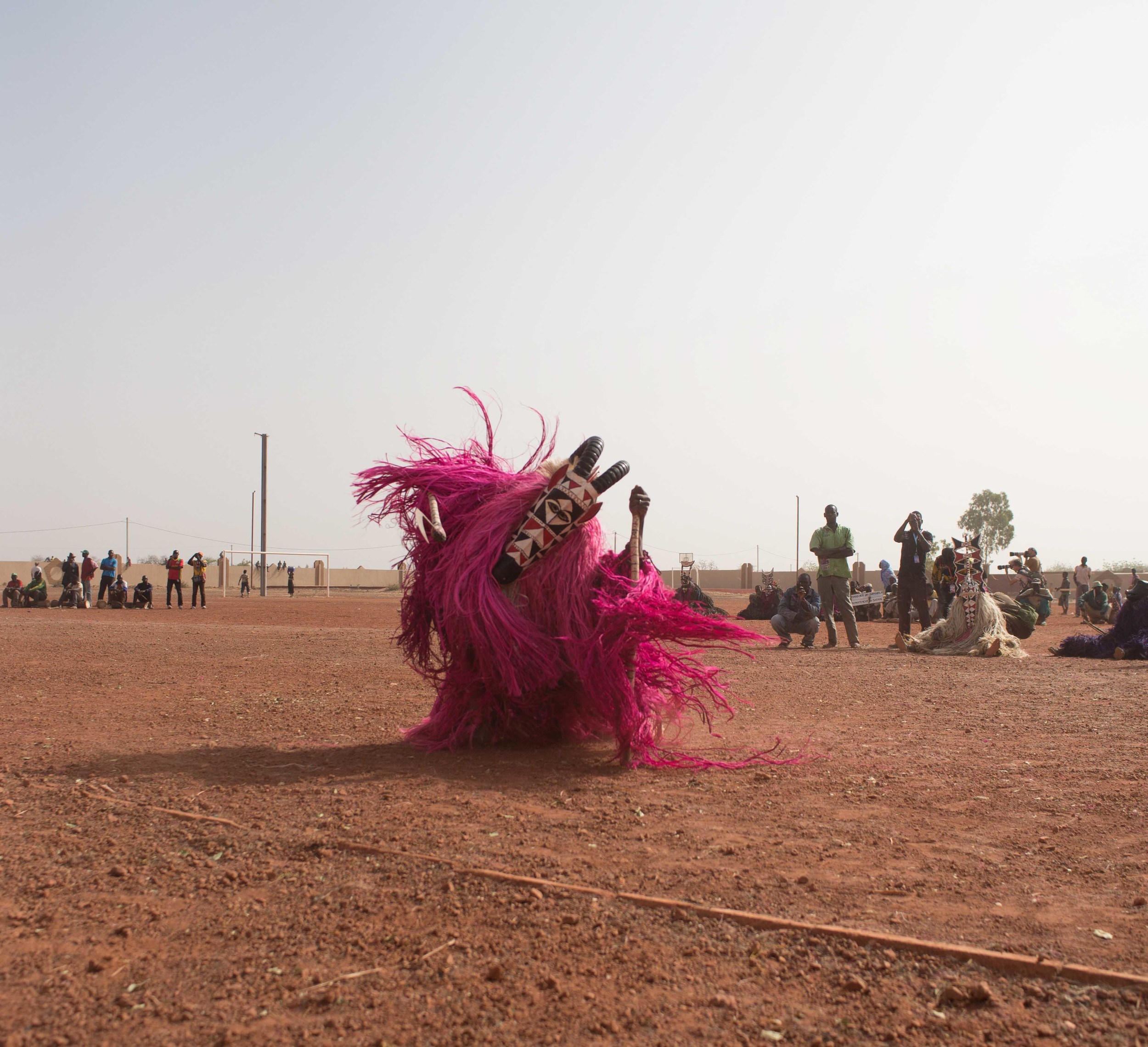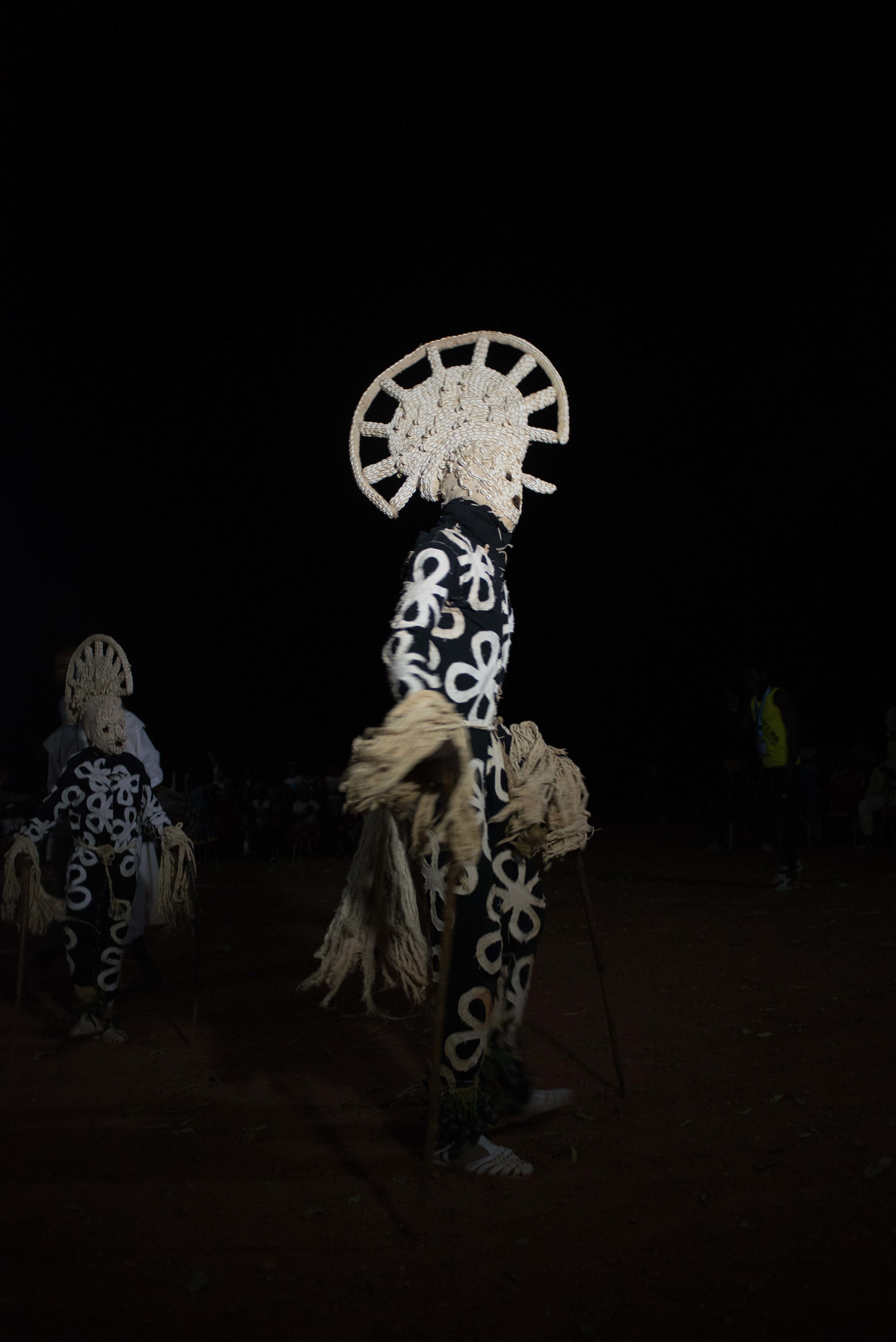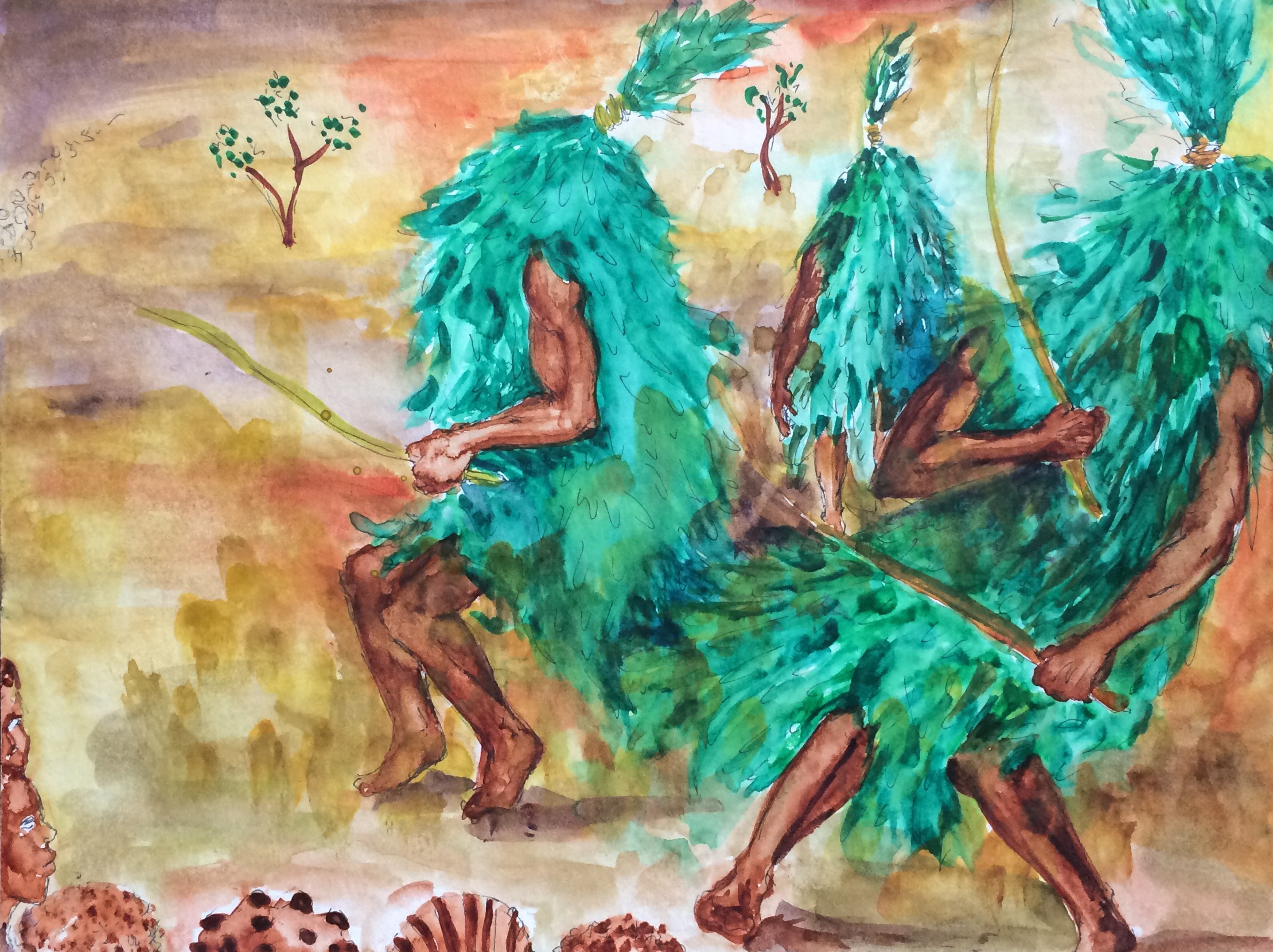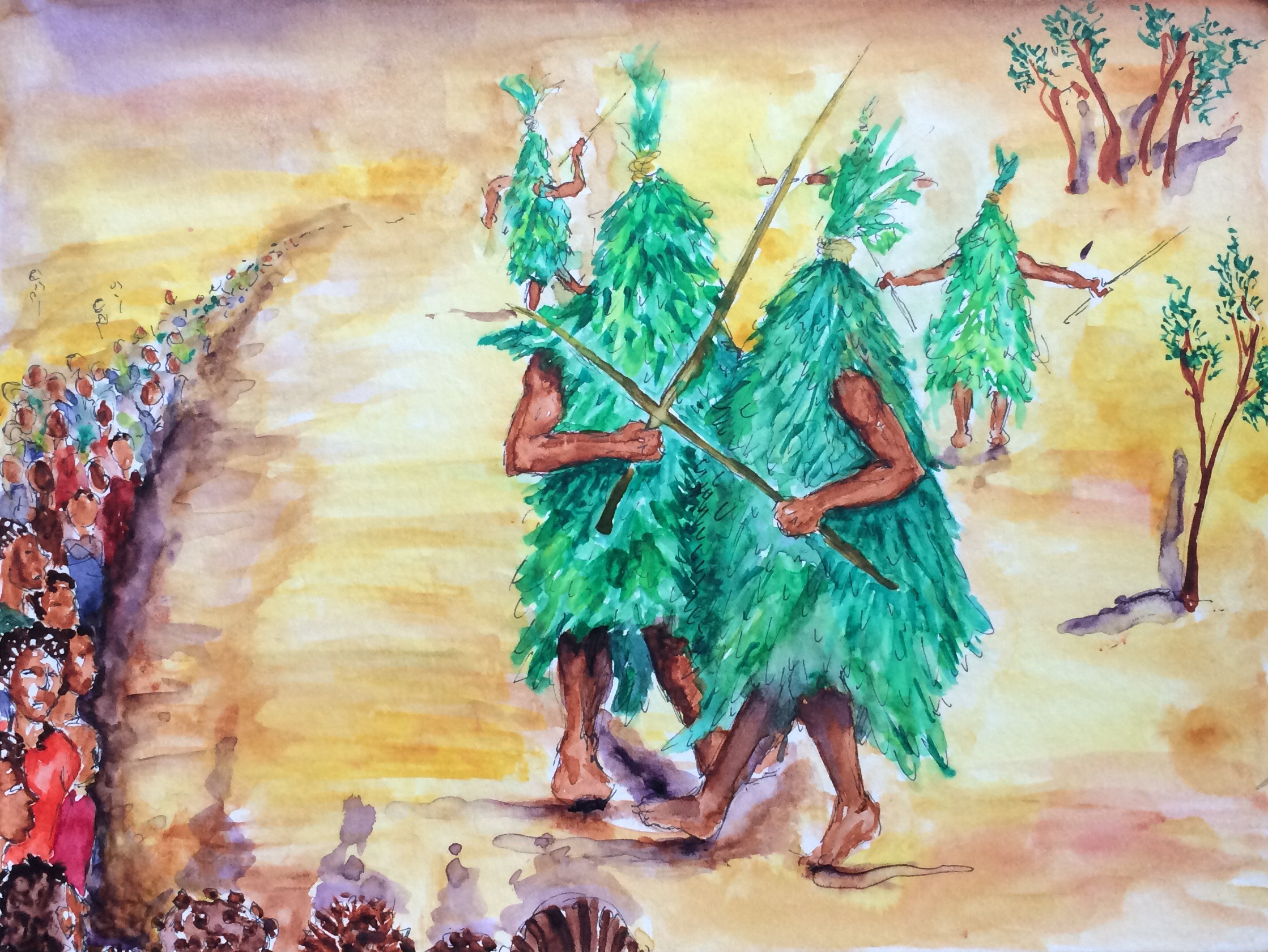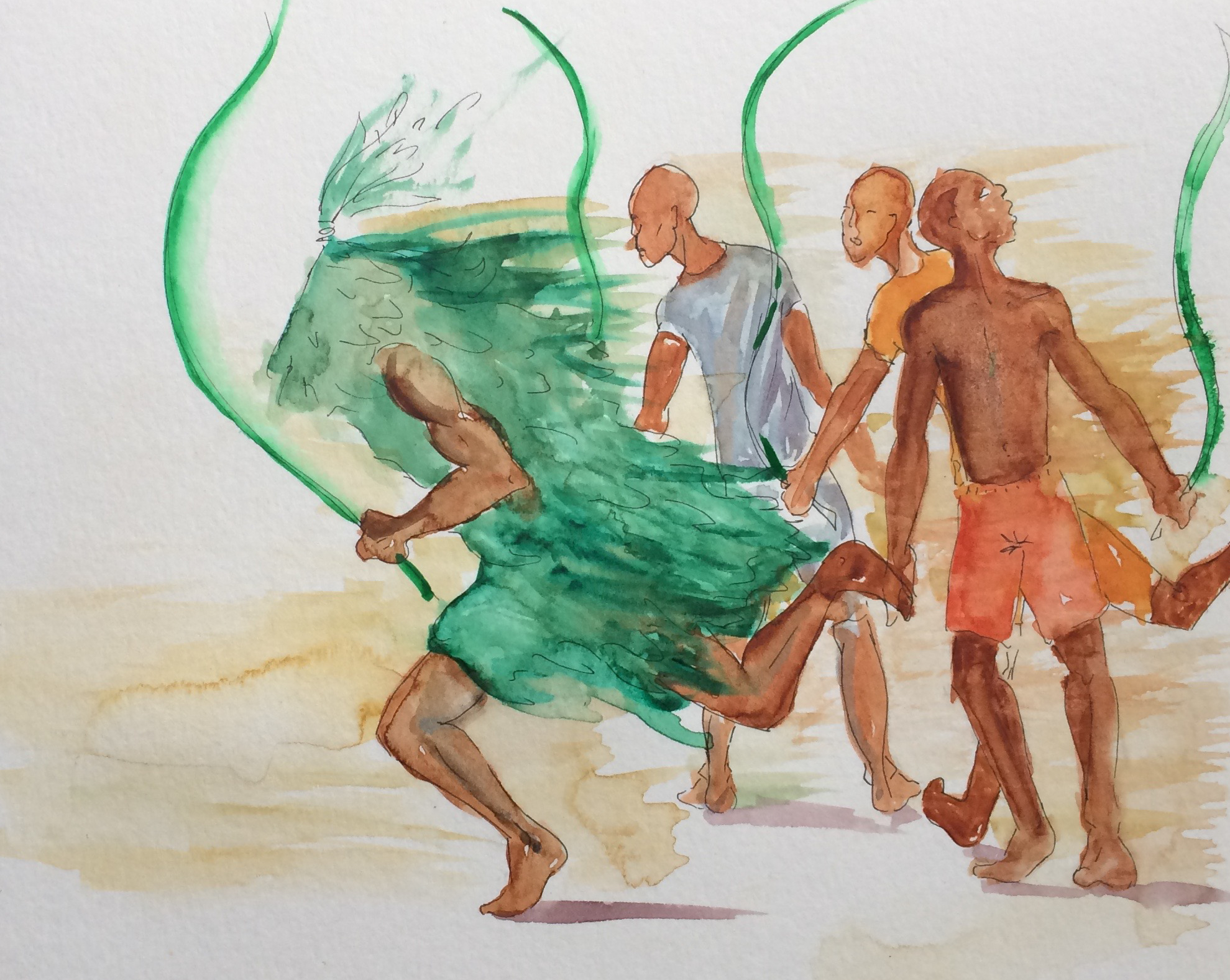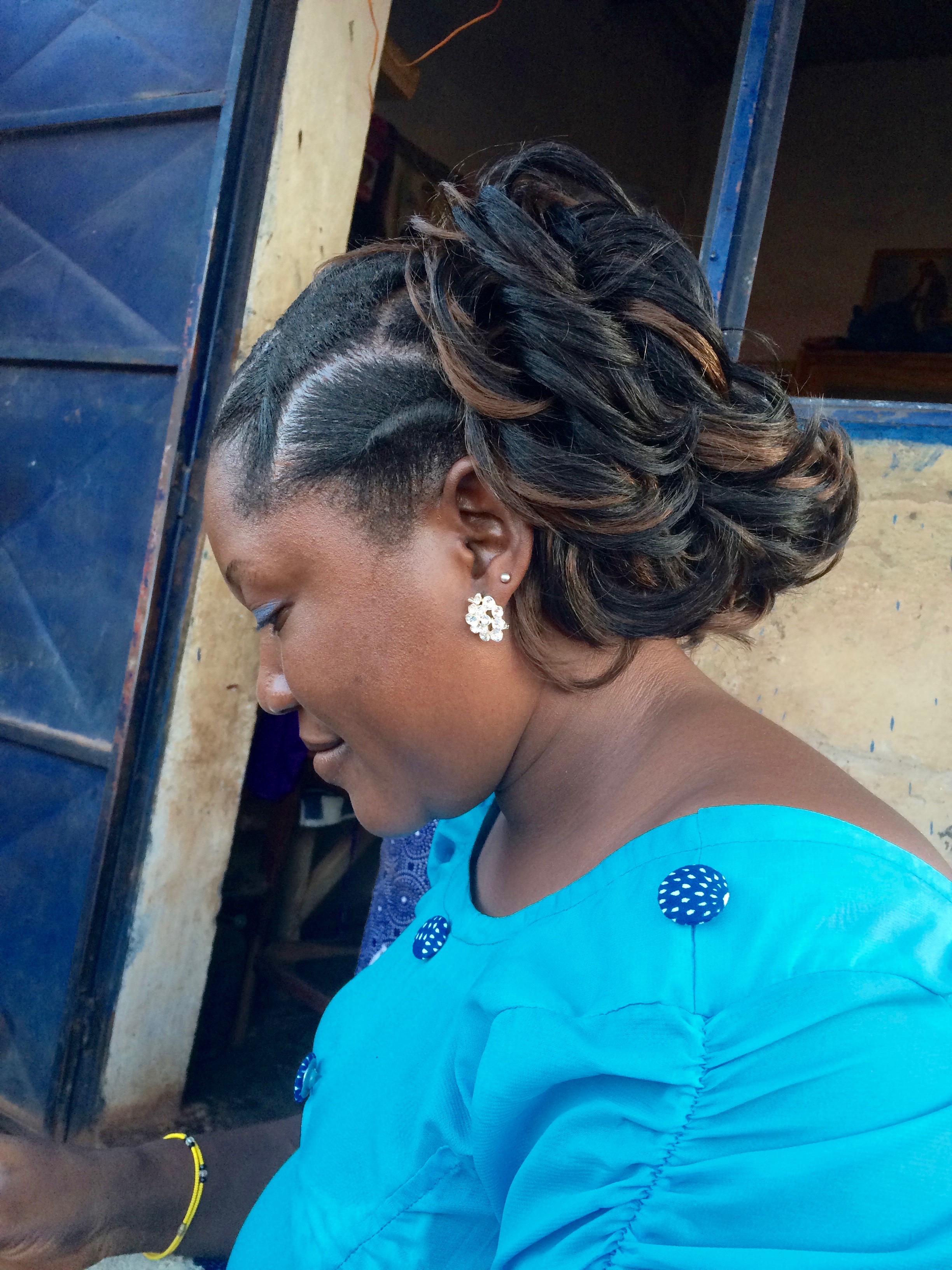Amongst the rich experiences I had on my two-week sojourn in India was the privilege of celebrating Holi, a very popular Hindu holiday. I had planned the trip so that Jeff and I would meet other recent return Peace Corps volunteers in Mathura, the supposed birthplace of the holiday. So, on March 12th, we found ourselves in a mediocre hotel on the eve of the most exciting day in the month-long celebration of color and music. I have asked Indians and foreigners alike what the origin of Holi is, and each has a different story. I did my best to understand the significance of the holiday, but every time I tried to lock down the meaning I found myself shooting at a moving target. At the end of the day, it seemed more important to Mathura’s locals that we participated in the festivities, which involve parades with rowdy music and throwing hand fulls of bright colored dust and water at anyone within range. Once you are out in the street, you are fair game.
It is safe to say that we westerners were entirely unprepared for this celebration. Once Jeff and I were outside we quickly got caught in a group of jubilant men who gently smeared pink and green powder on our cheeks and decorated us both with yellow paint. They handed us cold cups of chai tea and demanded we dance to the live band. When we finally broke away, happily covered in celebration, we ducked into a narrow alleyway where an overwhelming parade gave us a taste of just how intense the celebration can get. Holi is a day where everyone, despite his or her age, has an equal right to participate. Groups of children darted around the streets with little color bombs in their hands aiming for any body part they could reach and then quickly disappearing. With no ammunition of our own Jeff and I were completely at the mercy of the color-wielders, but good-naturedly fielded every pigment added to our faces and clothes. When we arrived at the parade, one youngster carefully took aim and blasted me with pink powder right in the eyes.
Despite the madness, Jeff and I returned to our hotel excited for the following day when we planned to return fire. The next morning we gathered our small platoon of westerners, each picked colors, and went out excited to be part of Holi. The seven of us spent the morning running through Mathura’s narrow streets and coordinating our movements like we were players in a first person shooter game. There was friendly fire from above our heads, from store windows, and from sneaky groups of children rushing out of alleyways to ambush passers by. Dyed water from water balloons, super soakers and florescent foam from silly string cans joined the colored powder all over our bodies. The entire city was one giant game of color, and we got to be a part of it.
Click to enlarge
And then someone grabbed my breast.
Suddenly, instead of being bombarded by friendly mobs looking to add to our bodily canvases of color, packs of men mobbed the four women in our group and aggressively jettisoned color into our faces ears and eyes, taking advantage of the confusion to put their hands wherever they wanted. In the blink of an eye Holi turned from a game into a war, and winning for us women was just a question of making it out in one piece. The three men that were with us tried their hardest to create physical barriers for us whenever they saw a group of men approaching, but there were too many to stop and I lost count of how many times I was grabbed. At one point, furious, I took the Holi powder in my hand and smacked one of the men so hard that he fell away in shock, fading off into a dust cloud of orange and pink.
Strangers approaching us calling out ‘Happy Holi!’ were enemy soldiers, and we started to think of the powder not as part of a game but as a smoke bomb that, if used properly, could give you just enough time to slip out of someone’s grasp. Men and boys alike, emboldened by what we soon realized was a holiday that only males celebrate in public, exorcised freely powers that are occasionally better policed. By the time we found our way out of the madness, the four of us female bodied folk were clutching our half empty bags of Holi powder to our chests like they were the only thing between us and the sea of searching hands. We didn’t go outside for the rest of the day, even when we were told Holi was over.
I am pleased to say that I consider this incident, like that of the Beach Bandit, a glaring exception when it comes to traveling in India. It made me think back to my first rickshaw ride in Mumbai when I had arrived in India. I wasn’t prepared for the way people drive on Indian streets, the constant games of chicken, the swerving, the sudden turns and the close calls that seem to happen every 30 seconds. The first few times I held for dear life onto the railing of the vehicle, grinning stupidly, and watching with amazement as Mumbai whizzed by me. This is what it is like to travel as a woman, flying around the world with your eyes so wide you’ve forgotten how to blink, awed by the beauty and the spectacle of the ride but smart enough to be holding on tightly with both hands.





